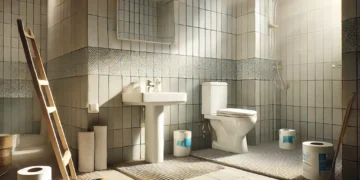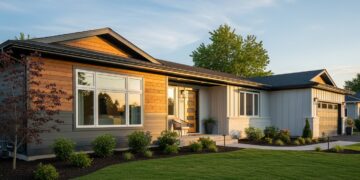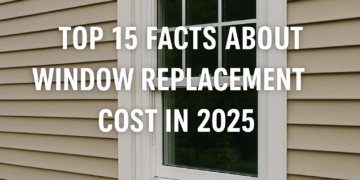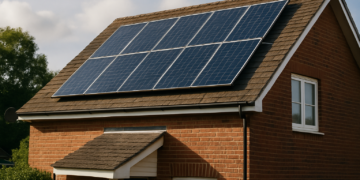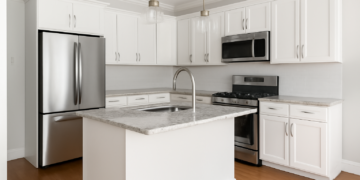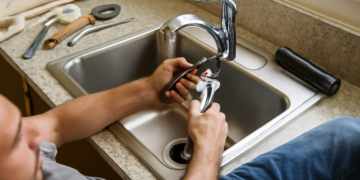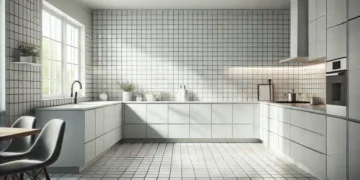Solar energy has grown in the market recently. Many homeowners are asking, “Are solar panels worth it?” This guide covers the pros and cons of solar panels, enabling readers to make a knowledgeable decision about whether solar power is right for their homes.
What Are Solar Panels?
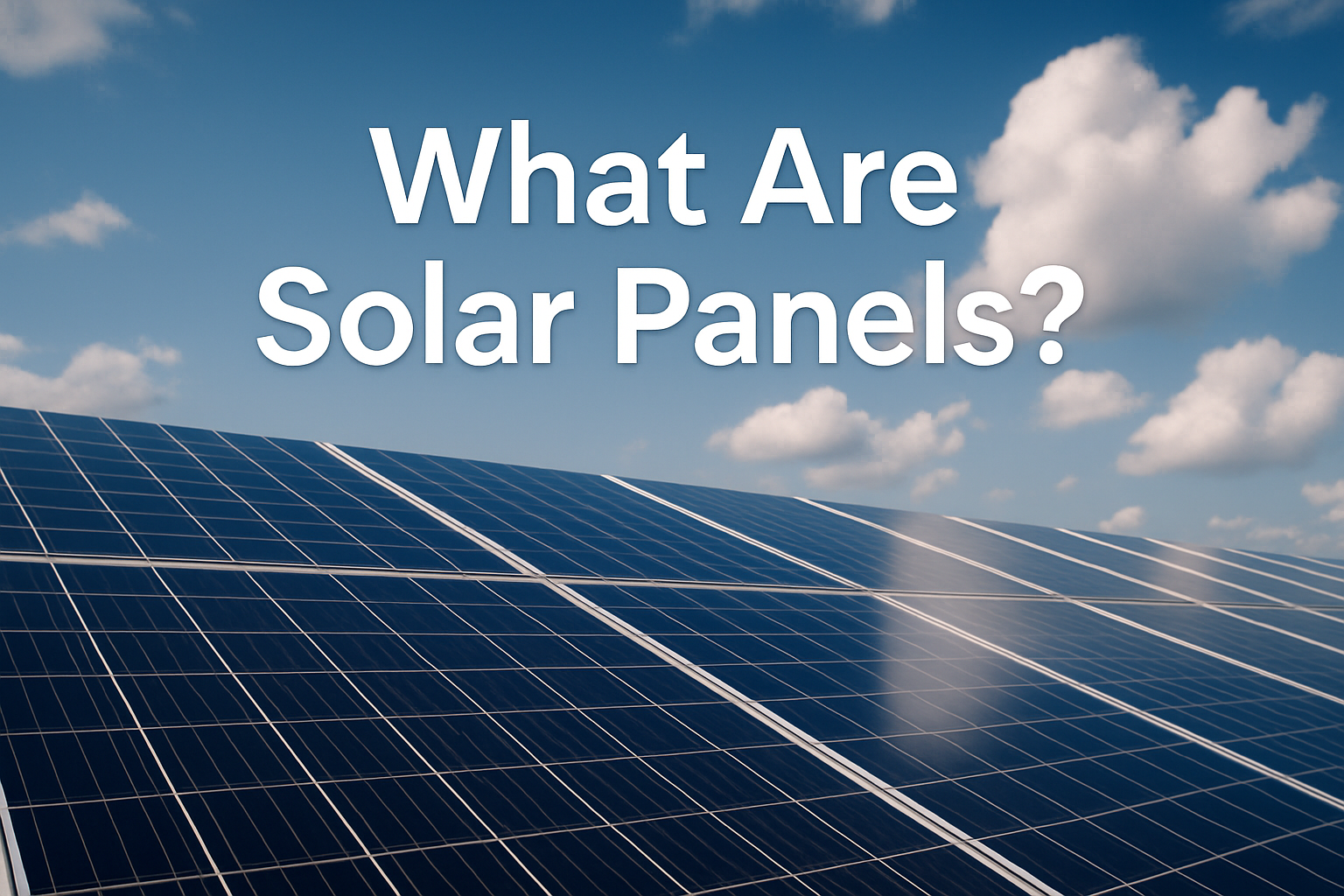 Solar panels are units that convert sunlight into electricity. They contain photovoltaic cells that capture solar energy and change it into power for homes and businesses. For a detailed understanding of the technology, you can explore resources from institutions like the National Renewable Energy Laboratory (NREL).
Solar panels are units that convert sunlight into electricity. They contain photovoltaic cells that capture solar energy and change it into power for homes and businesses. For a detailed understanding of the technology, you can explore resources from institutions like the National Renewable Energy Laboratory (NREL).
How Do Solar Panels Work?
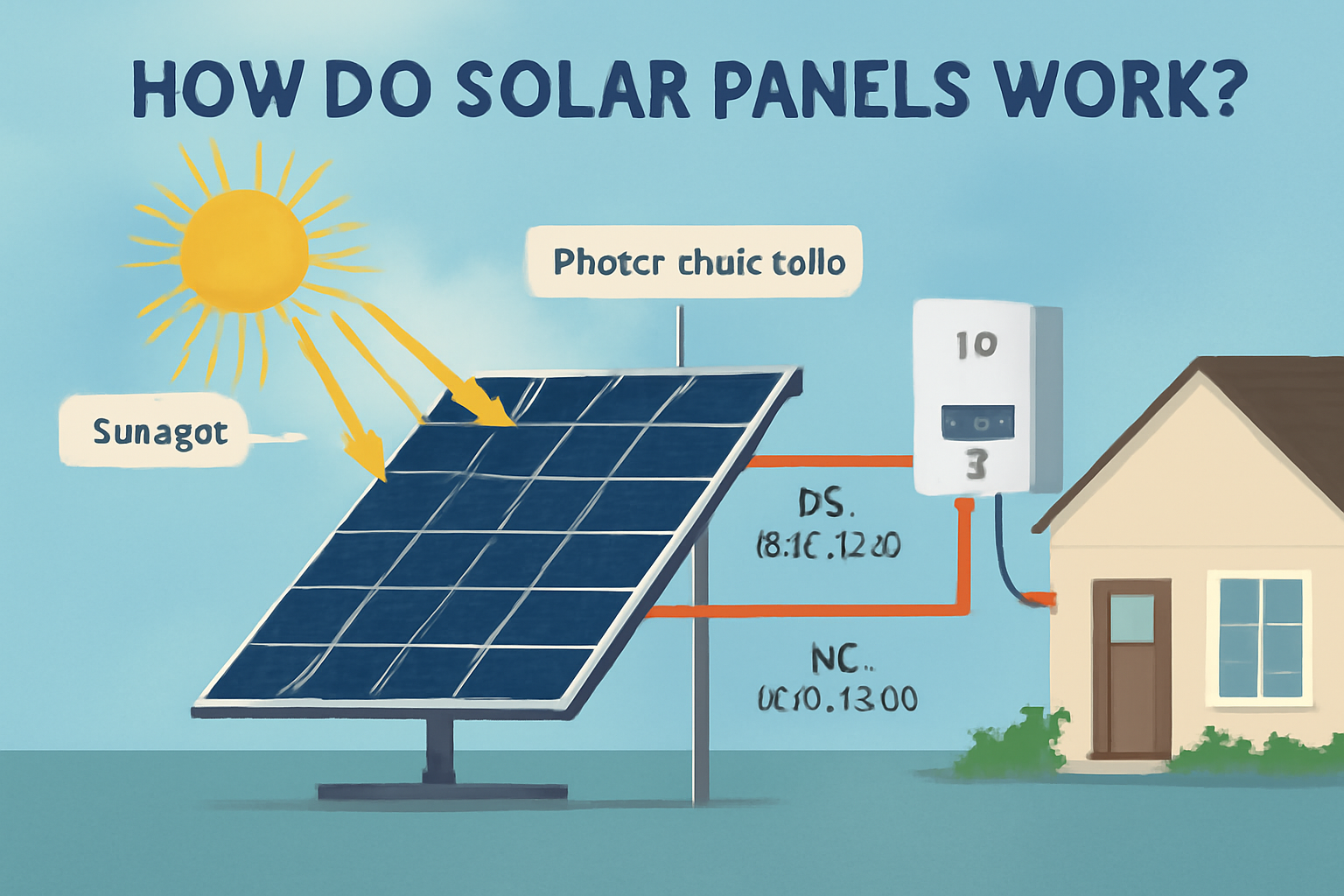 Solar panels get electricity by absorbing the sun’s rays with photovoltaic cells. These cells then convert sunlight to direct current (DC) electricity. An inverter that converts the DC electricity to alternating current (AC) electricity to run appliances and homes.
Solar panels get electricity by absorbing the sun’s rays with photovoltaic cells. These cells then convert sunlight to direct current (DC) electricity. An inverter that converts the DC electricity to alternating current (AC) electricity to run appliances and homes.
Are Solar Panels Worth It? The Benefits
1. Lower Energy Bills
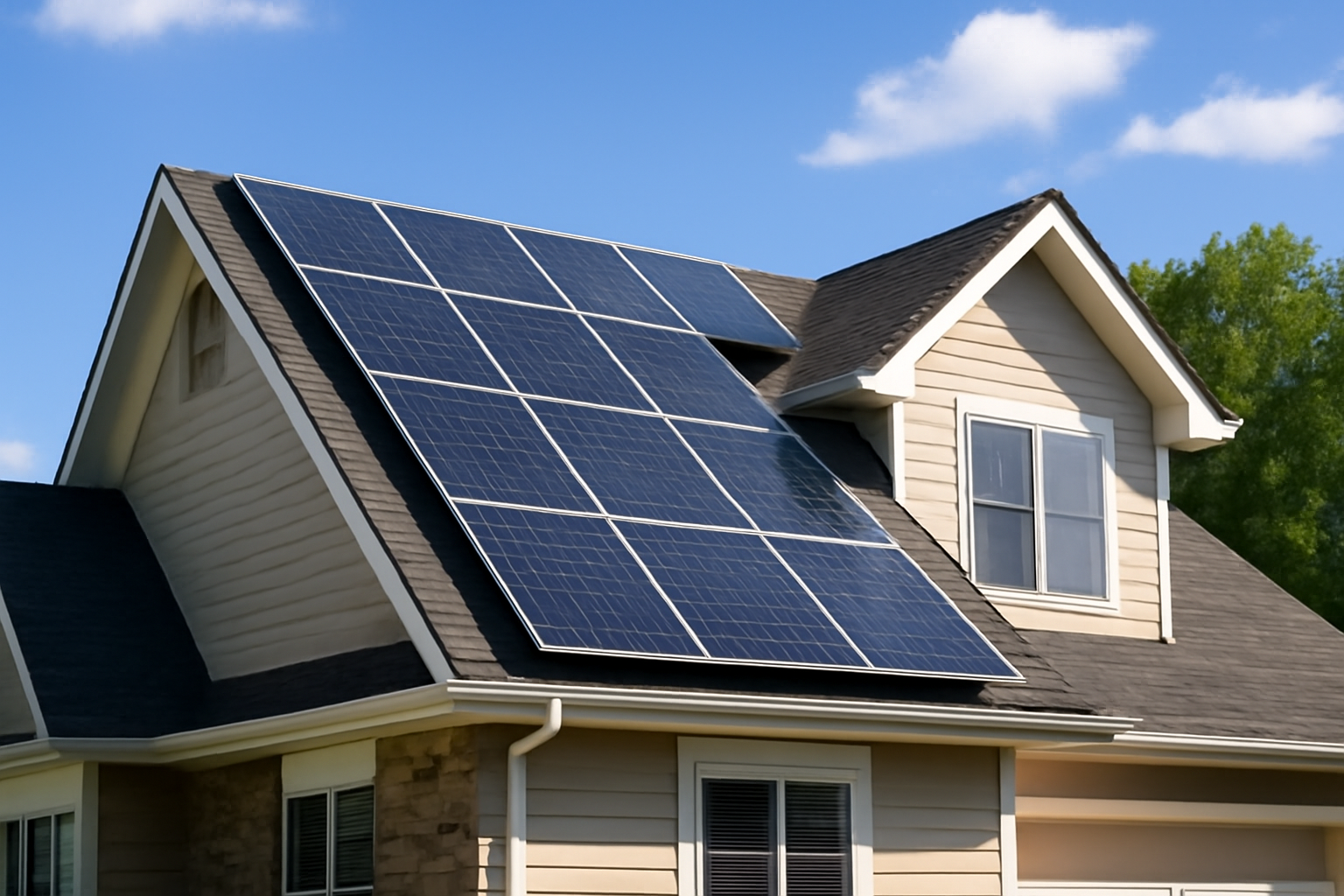 The main benefit of solar panels is that they can manage energy costs. Households can decrease their utility bills significantly when generating their own electricity. This pursuit of cost savings through smart energy choices also extends to selecting energy-efficient appliances for your home.
The main benefit of solar panels is that they can manage energy costs. Households can decrease their utility bills significantly when generating their own electricity. This pursuit of cost savings through smart energy choices also extends to selecting energy-efficient appliances for your home.
2. Environmentally Friendly
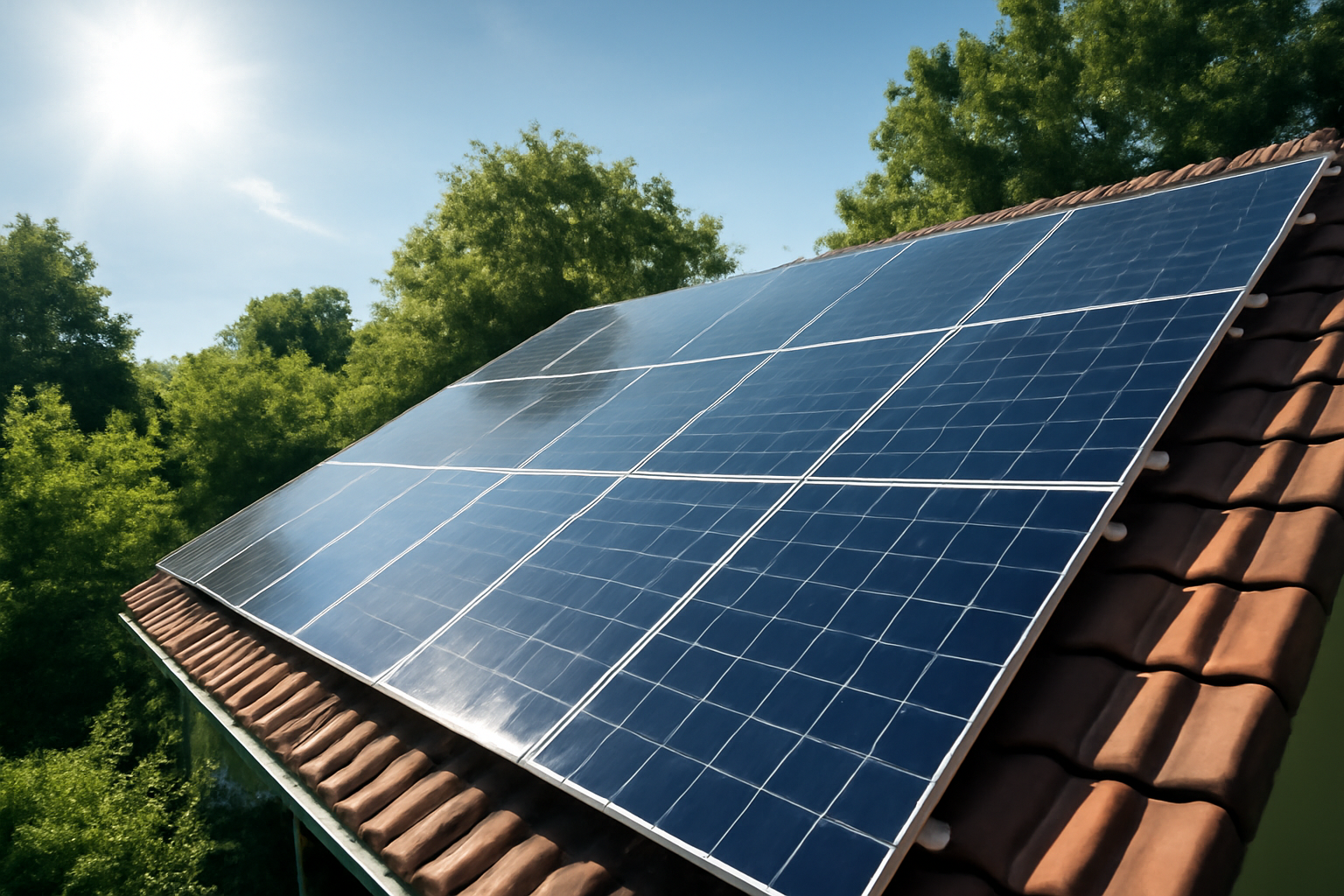 Solar energy is a clean, renewable energy source. It doesn’t pollute the environment and doesn’t have an effect on climate change, so it’s a green choice for green-conscious homeowners.
Solar energy is a clean, renewable energy source. It doesn’t pollute the environment and doesn’t have an effect on climate change, so it’s a green choice for green-conscious homeowners.
3. Energy Independence
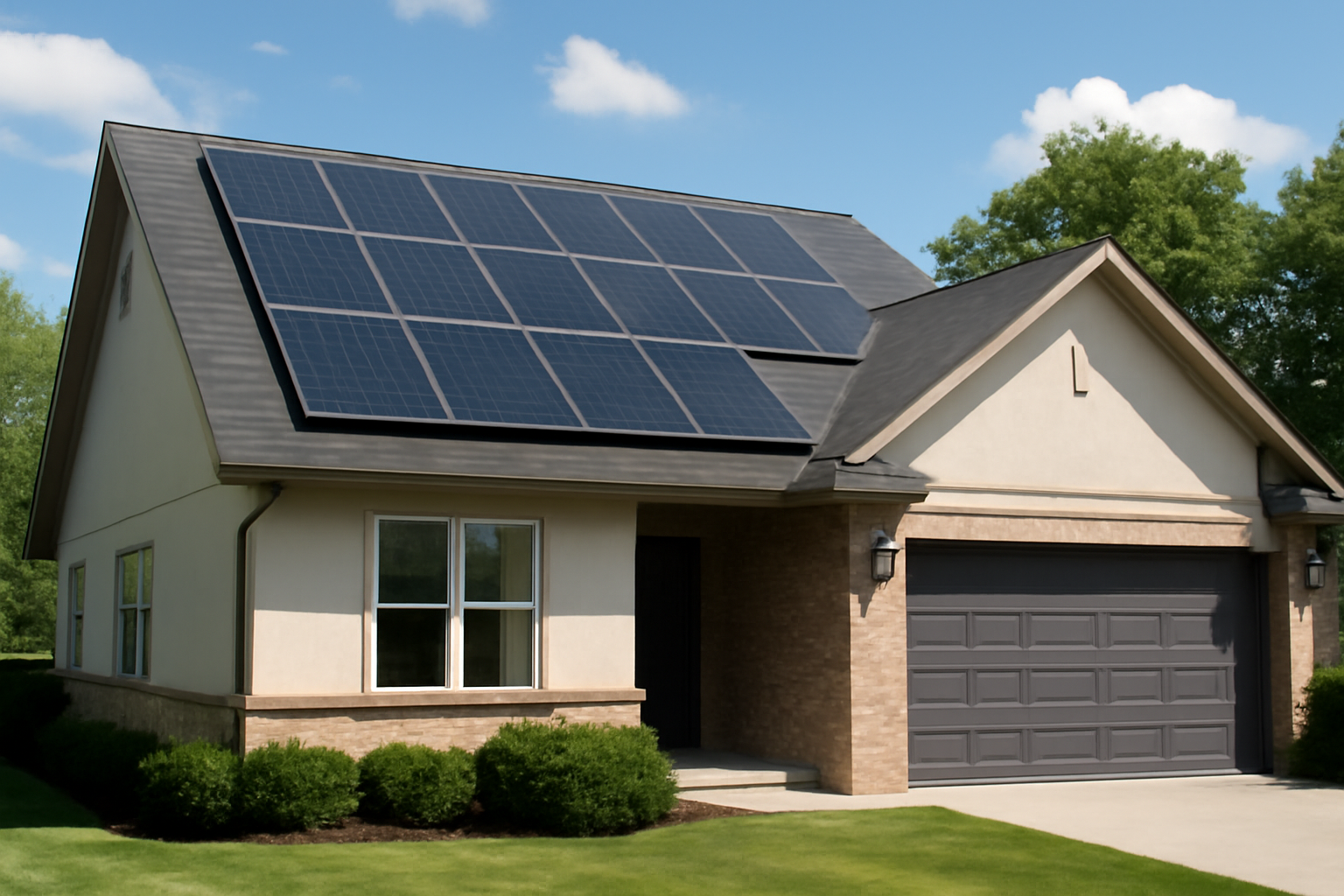 Solar panels help homeowners in a big way to be independent in terms of energy. By producing their electricity, they need less help from the power grid and companies.
Solar panels help homeowners in a big way to be independent in terms of energy. By producing their electricity, they need less help from the power grid and companies.
4. The Value of Your Home Increases
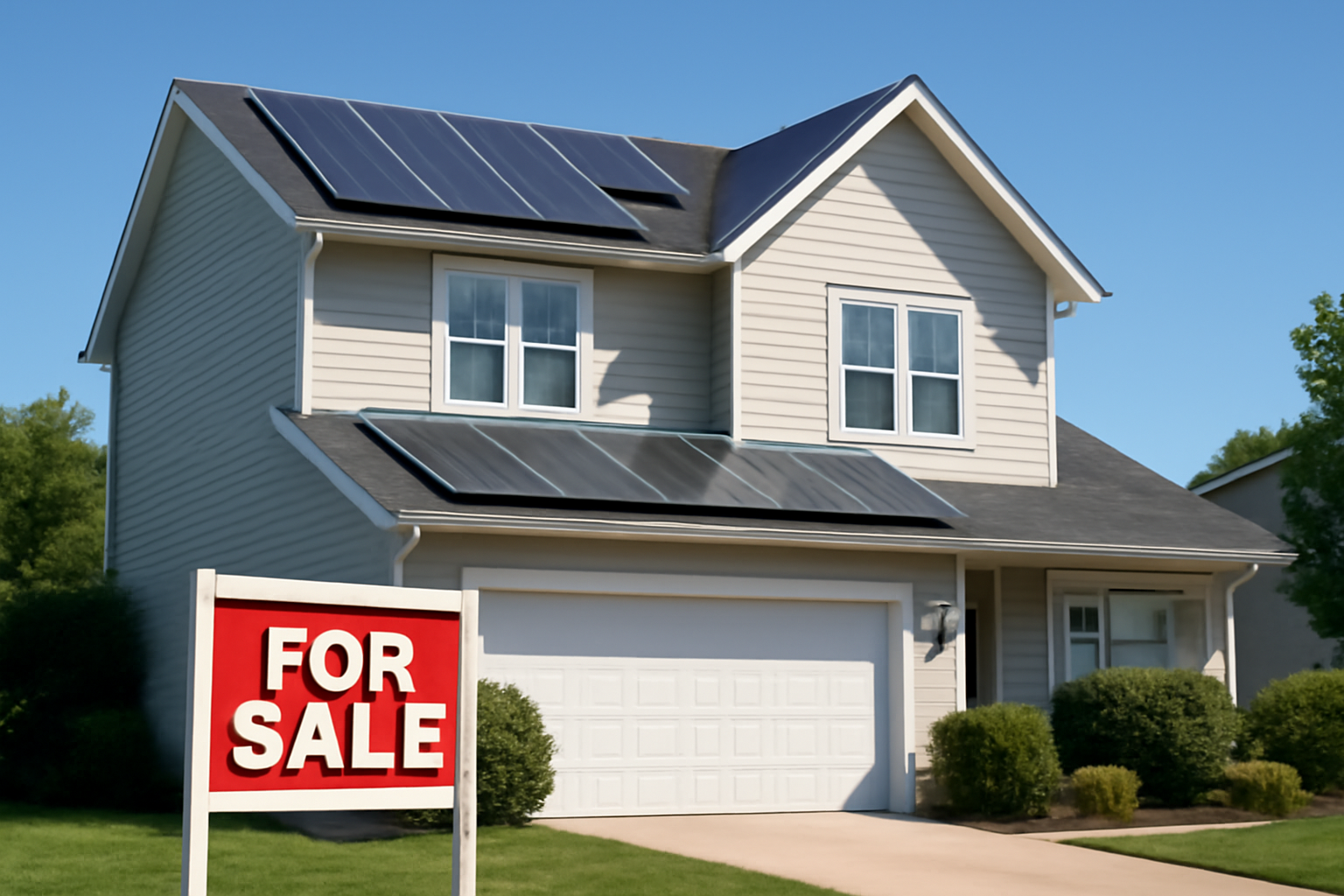 The addition of solar panels can bring a home’s price up. Most potential buyers prefer buying properties with functioning solar energy systems in place. Research from real estate platforms like Zillow often highlights how solar installations can positively impact property values.
The addition of solar panels can bring a home’s price up. Most potential buyers prefer buying properties with functioning solar energy systems in place. Research from real estate platforms like Zillow often highlights how solar installations can positively impact property values.
5. Less Maintenance
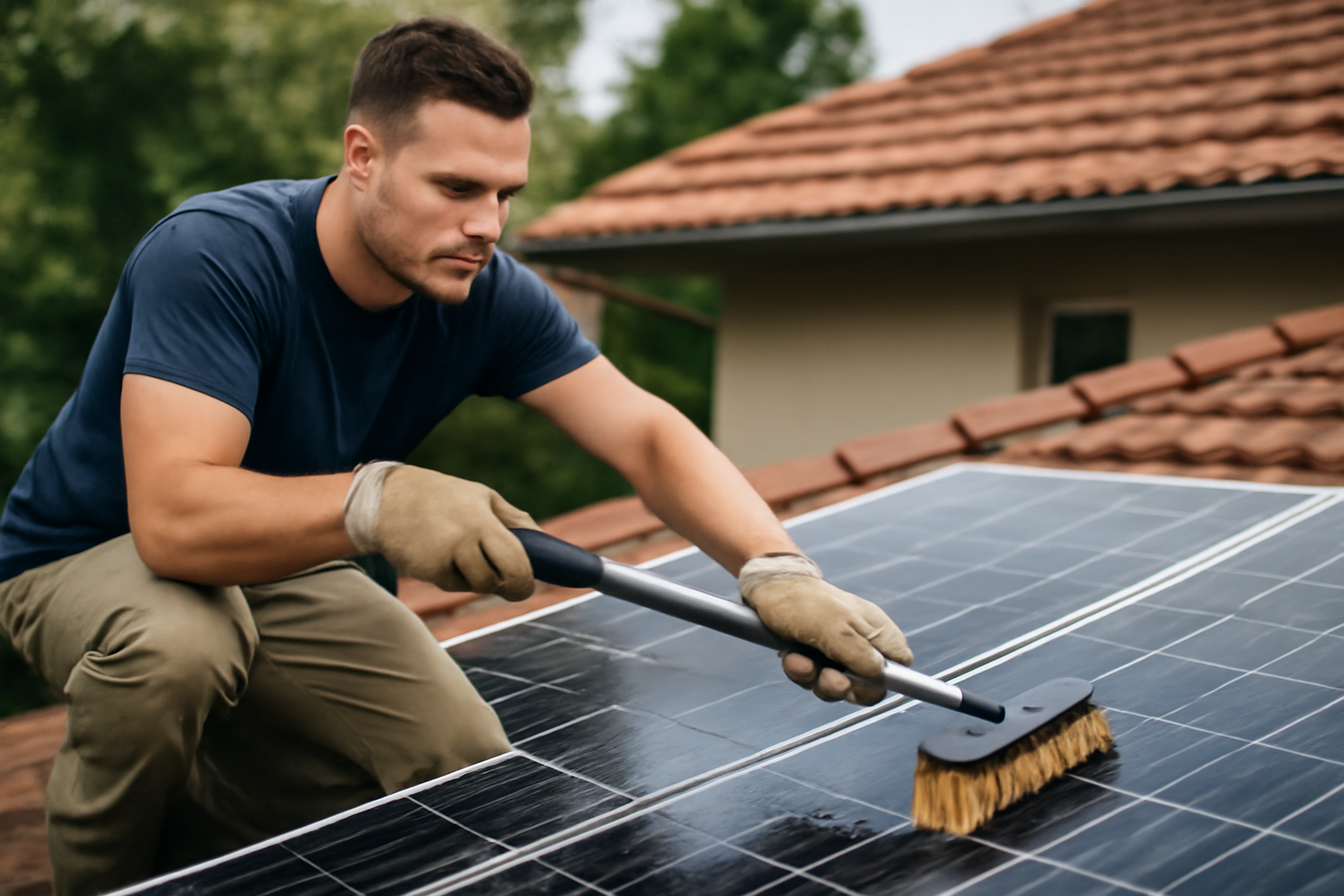 There is a small amount of work that you have to do with the solar panels. They have no wheels, and they can survive for 25-30 years if you take care of them properly. This minimal maintenance requirement is a significant advantage, similar to other aspects found on a comprehensive, easy home maintenance checklist.
There is a small amount of work that you have to do with the solar panels. They have no wheels, and they can survive for 25-30 years if you take care of them properly. This minimal maintenance requirement is a significant advantage, similar to other aspects found on a comprehensive, easy home maintenance checklist.
Are Solar Panels Worth It? The Drawbacks
1. High Initial Costs
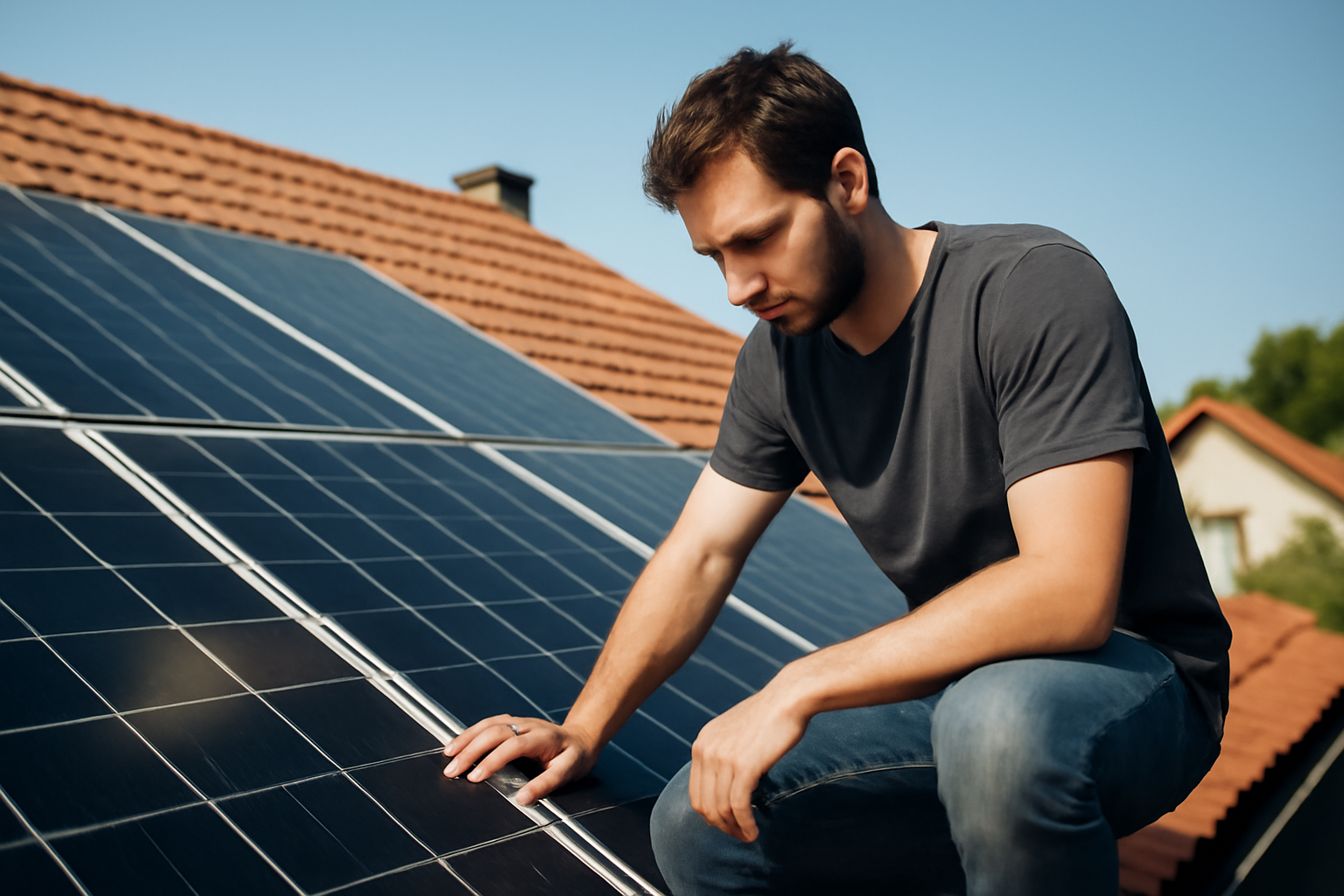 It is likely that the initial costs will be very high when you install solar panels. But nonetheless, there are many opportunities offering help to people in affording solar curbs and subsidies.
It is likely that the initial costs will be very high when you install solar panels. But nonetheless, there are many opportunities offering help to people in affording solar curbs and subsidies.
2. Weather Dependent
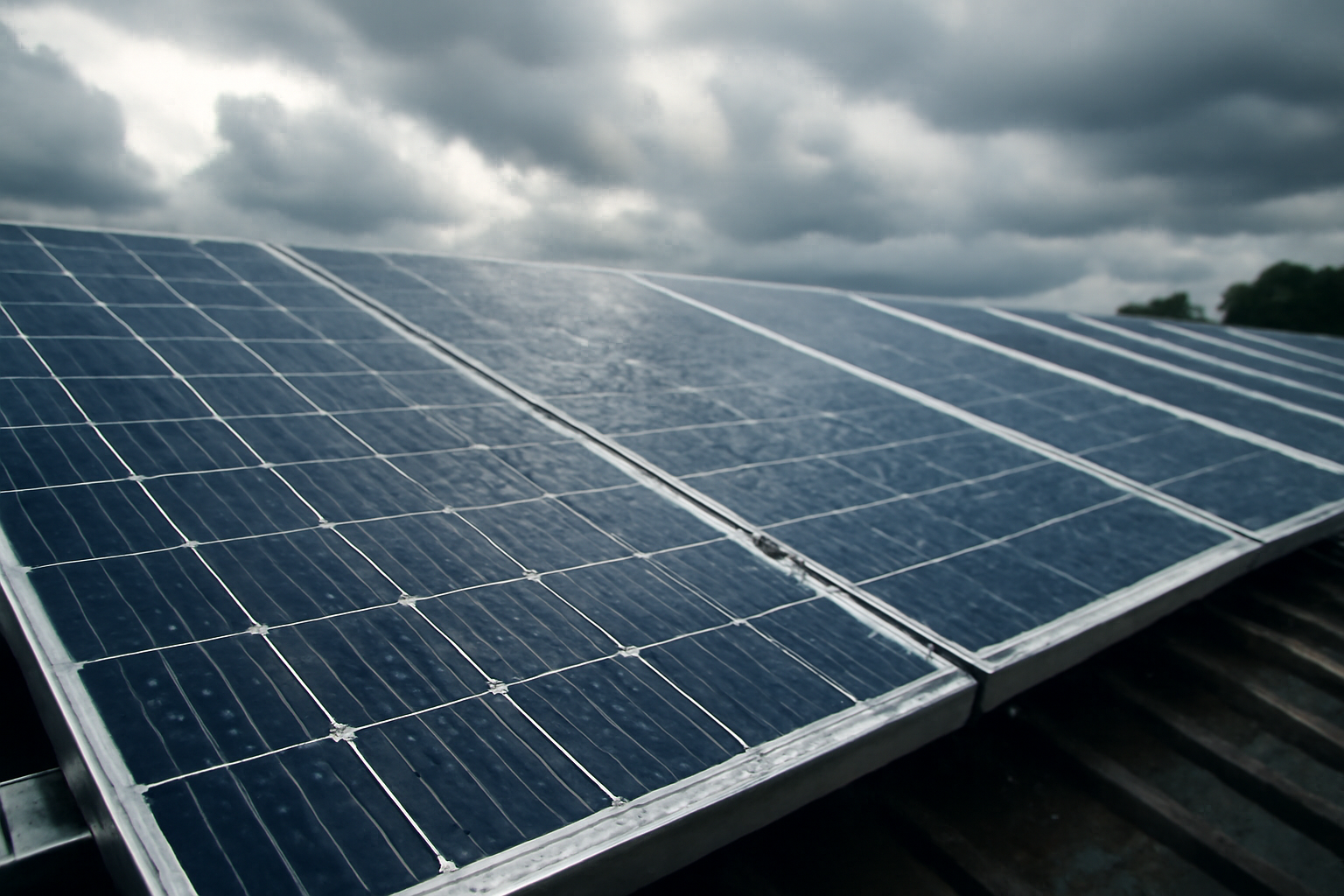 Solar panels depend on sunlight to produce electricity. During cloudy or rainy days, their efficiency may decrease, and they do not work at night.
Solar panels depend on sunlight to produce electricity. During cloudy or rainy days, their efficiency may decrease, and they do not work at night.
3. Space Requirements
Solar panels need a large amount of space on the roof. Some homes might not have enough space for fixing.
4. Energy Storage Costs
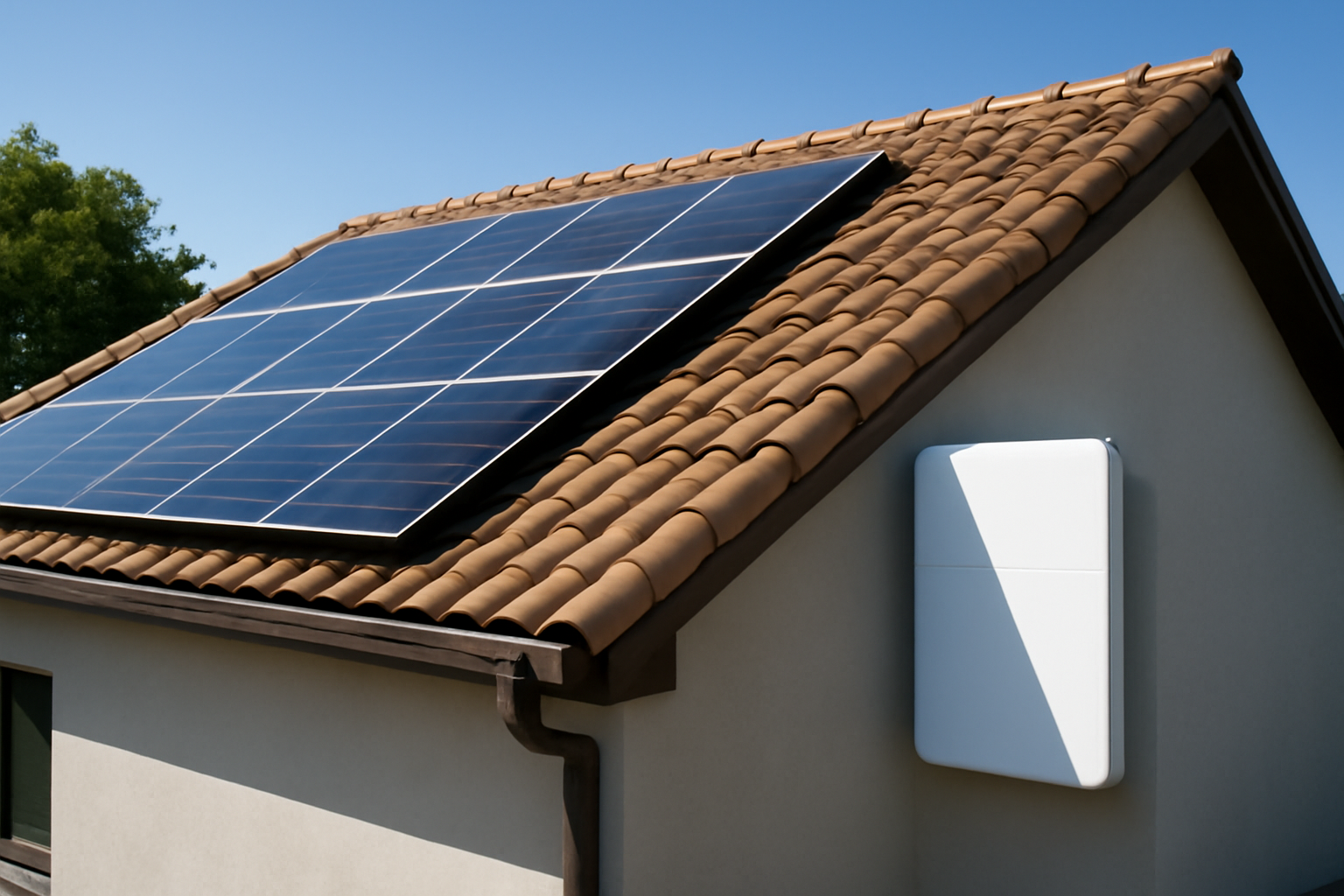
For the reason that solar energy cannot be used at night or during power failures, the house owners have to procure battery storage, which might increase the total cost.
Is Solar Energy a Good or Bad Thing to Buy?
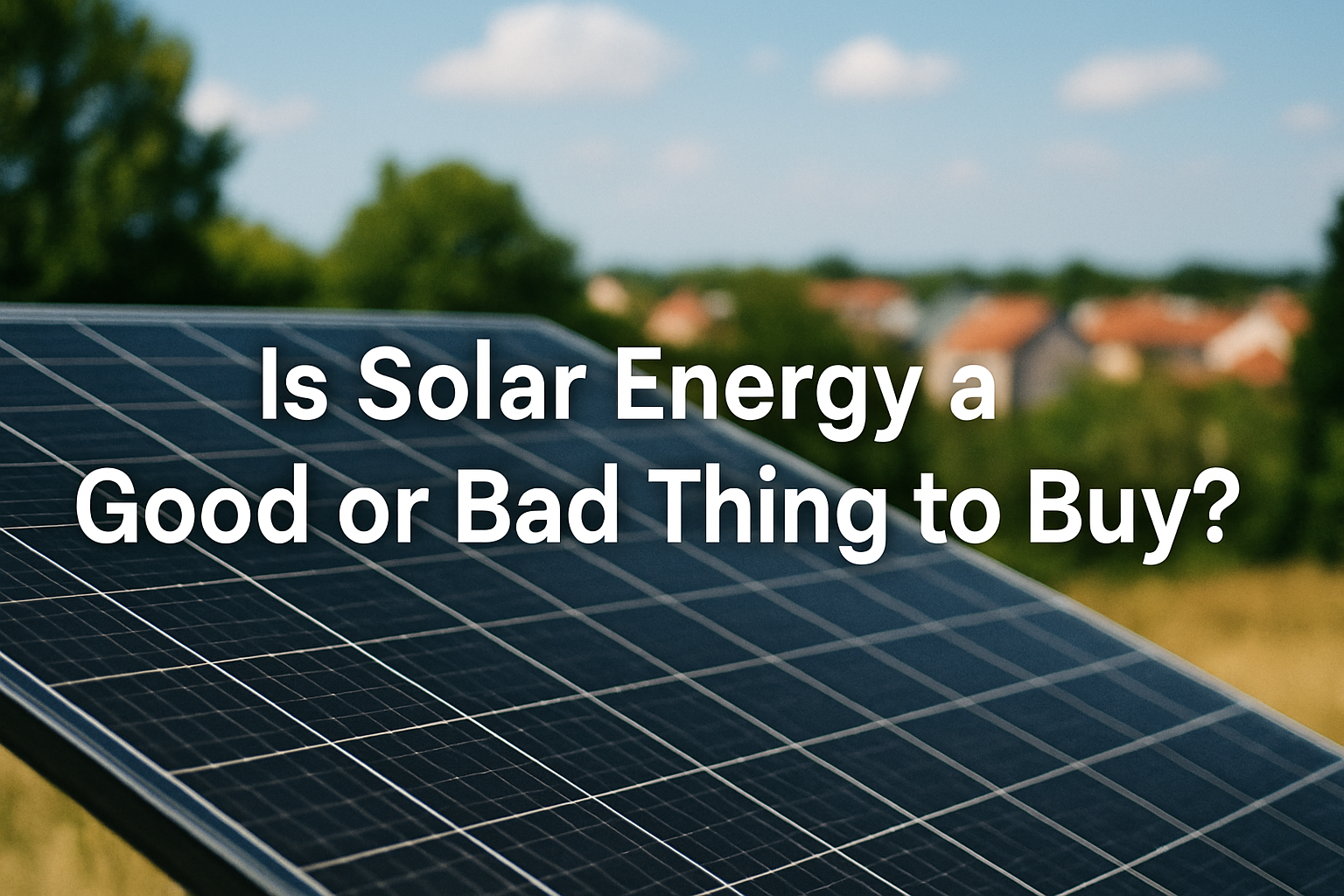
Because the financial side of solar energy depends on several factors, such as location, consumption of energy, and incentives availability, it can be a great or bad investment. But for many homeowners, solar panels are a smart investment that usually brings them savings in the long run.
Pros and Cons of Solar Panels
Pros:
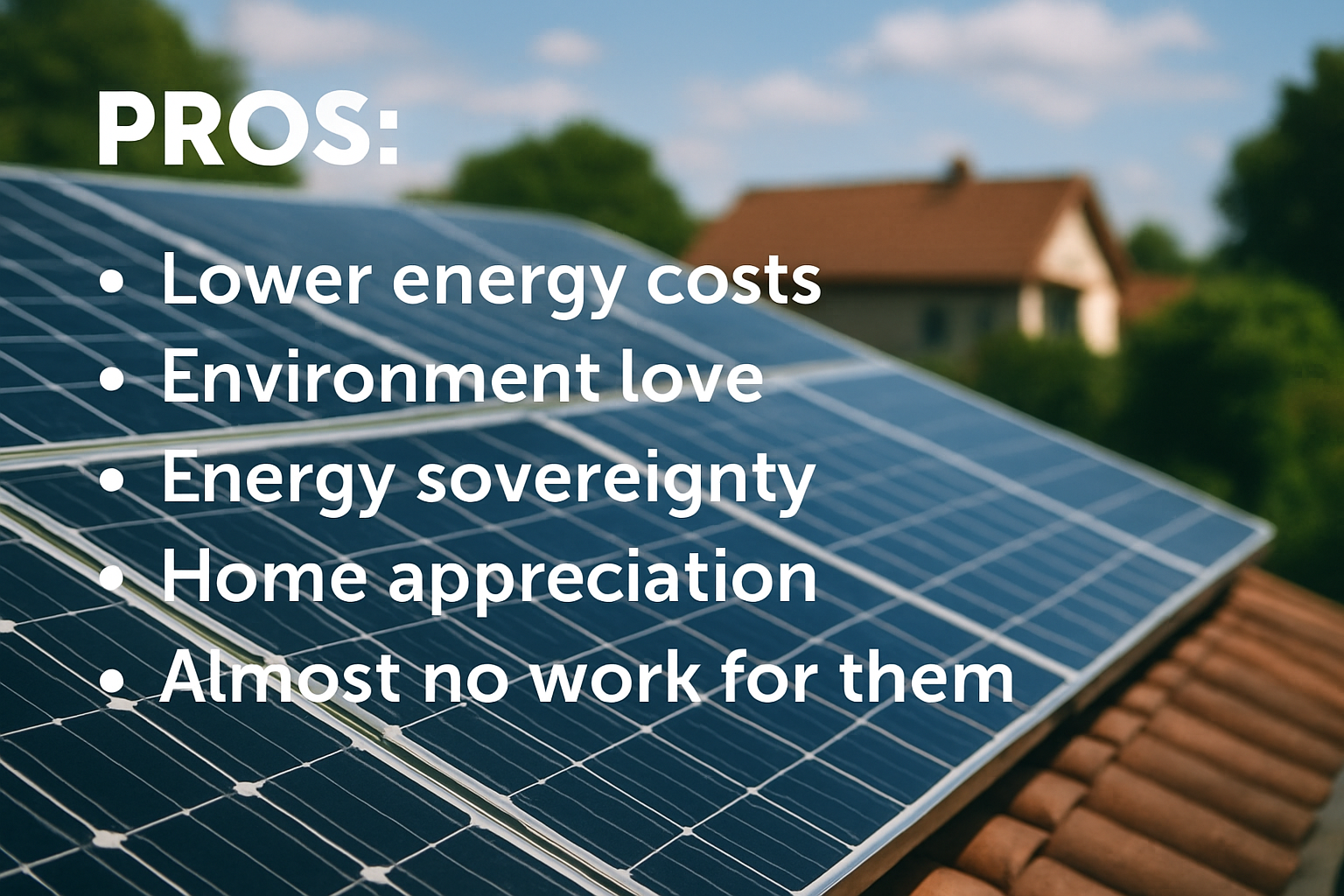
- Lower energy costs
- Environment love
- Energy sovereignty
- Home appreciation
- Almost no work for them
Cons:
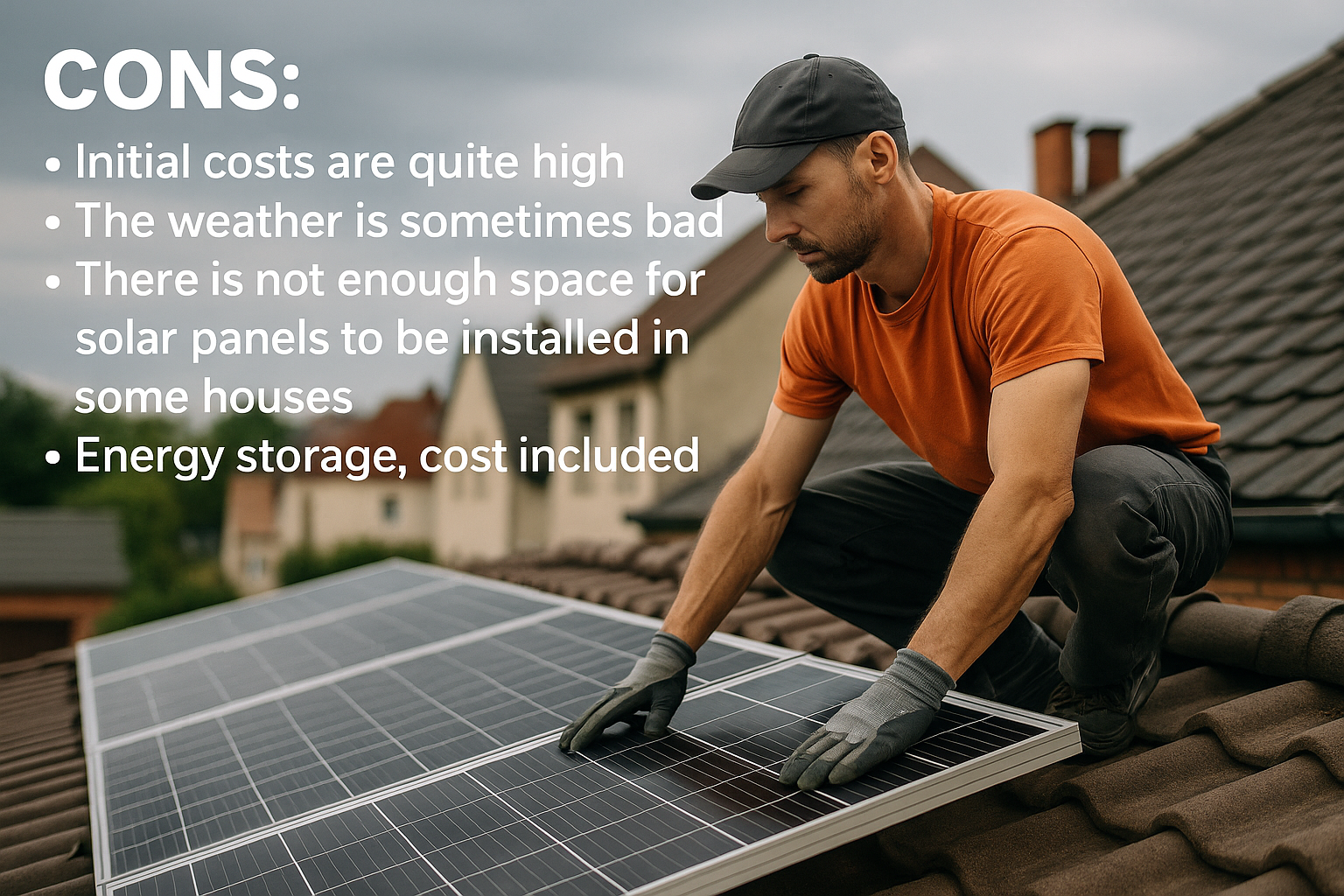
- Initial costs are quite high.
- The weather is sometimes bad.
- There is not enough space for solar panels to be installed in some houses.
- Energy storage, cost included.
Advantages of Solar Panels in Homes
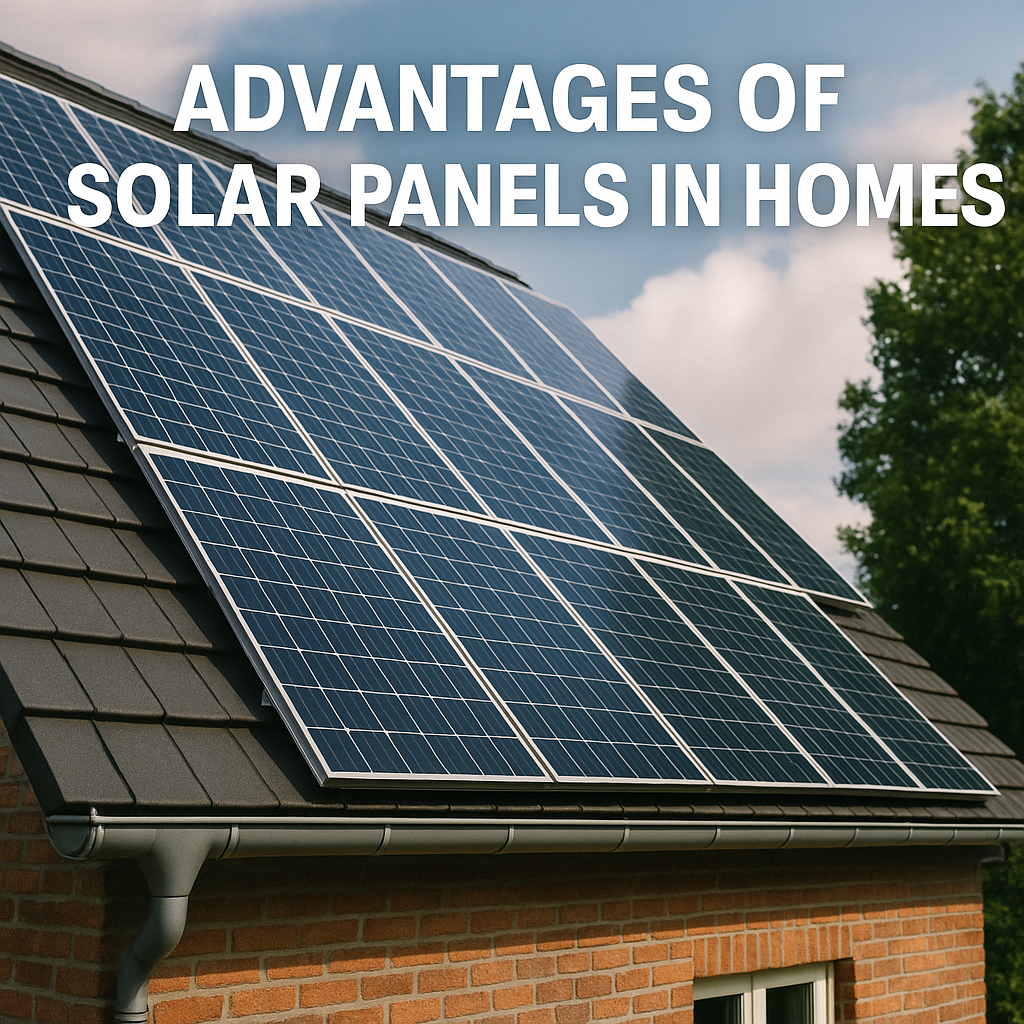 The gains of solar panels in homes are countless. They can produce savings in the long term, reduce the carbon footprint, and thus protect oneself from the inflation of electricity prices. Moreover, the solar panels’ maintenance is not demanding, and they can be used as tools for increasing property values.
The gains of solar panels in homes are countless. They can produce savings in the long term, reduce the carbon footprint, and thus protect oneself from the inflation of electricity prices. Moreover, the solar panels’ maintenance is not demanding, and they can be used as tools for increasing property values.
Is Solar Worth It? Factors to Consider
1. Energy Consumption
Houses with high energy use may benefit more from solar panels. The more electricity that households use, the more they can save.
2. Sunlight Exposure
Whether homes will make a profit out of solar panels depends on how they are exposed to the sun.
3. Local Electricity Rates
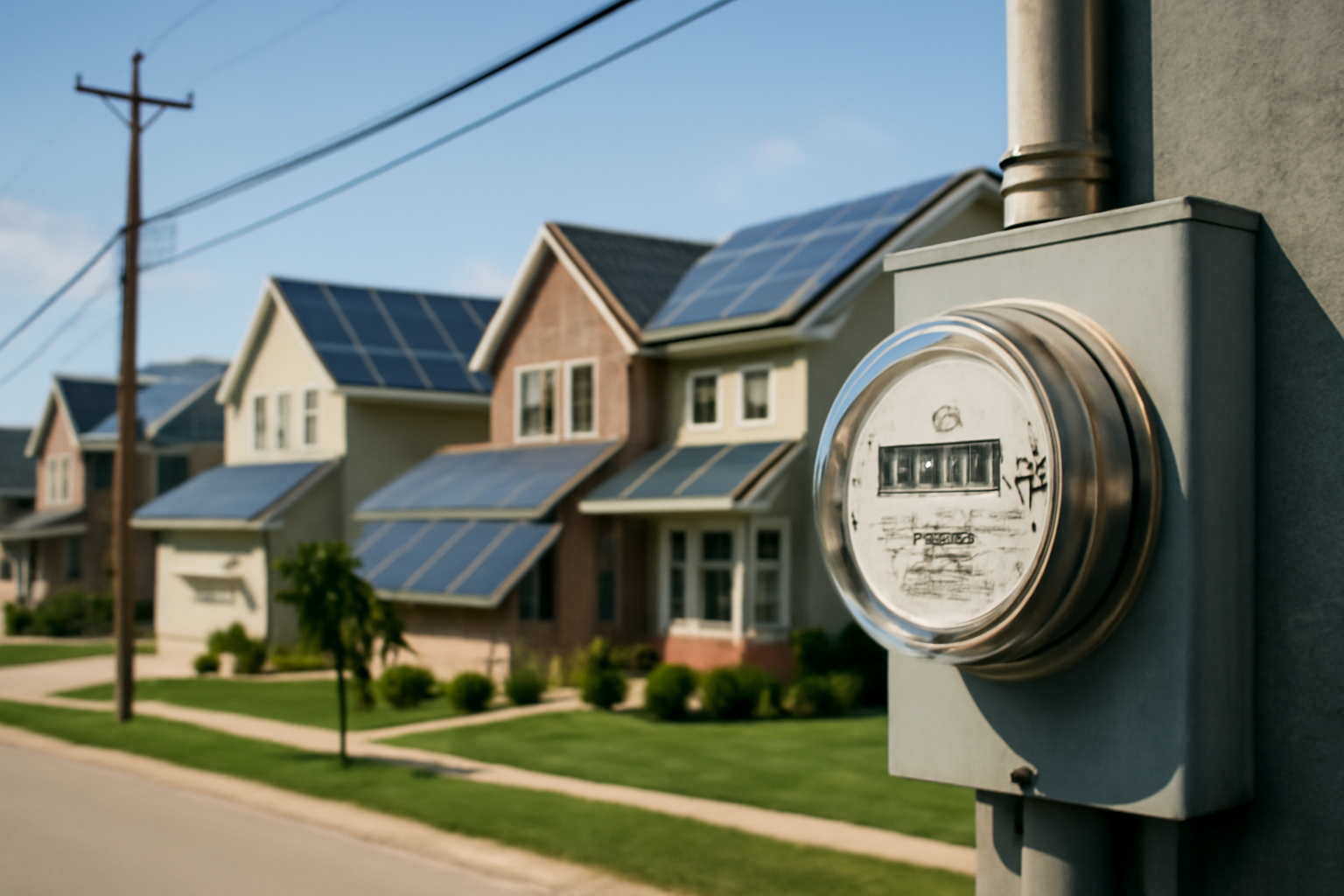 Areas that have more expensive electricity will benefit greatly from solar panels. The more expensive electricity gets, the more money can be saved from producing your own power.
Areas that have more expensive electricity will benefit greatly from solar panels. The more expensive electricity gets, the more money can be saved from producing your own power.
4. Available Incentives
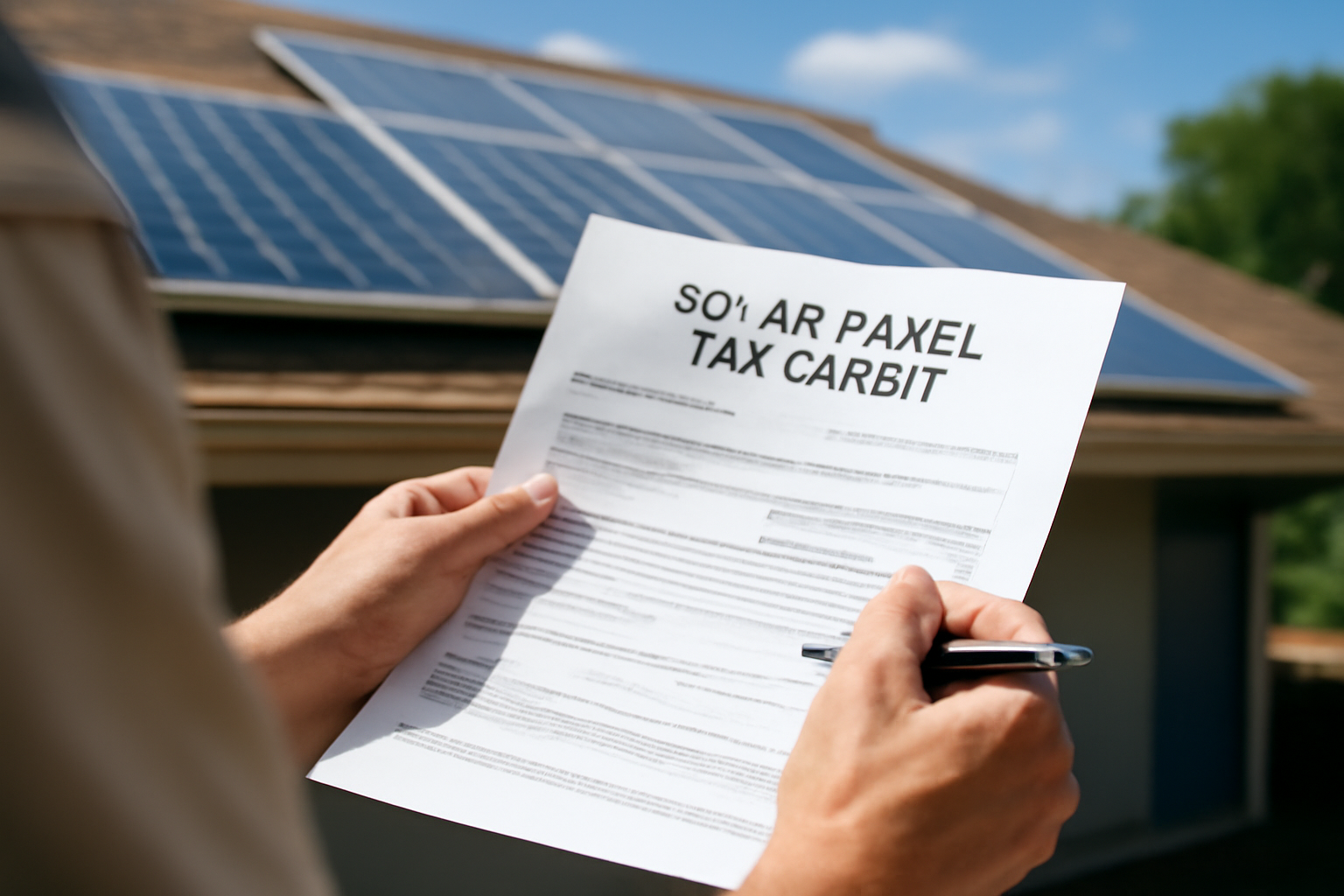 There are tax credits, rebates, and other incentives for solar panel installation in most areas. These can usually bring the high costs down. For comprehensive information on incentives, programs, and policies for renewable energy, databases like DSIRE (Database of State Incentives for Renewables & Efficiency) are valuable resources.
There are tax credits, rebates, and other incentives for solar panel installation in most areas. These can usually bring the high costs down. For comprehensive information on incentives, programs, and policies for renewable energy, databases like DSIRE (Database of State Incentives for Renewables & Efficiency) are valuable resources.
5. Roof Condition and Orientation
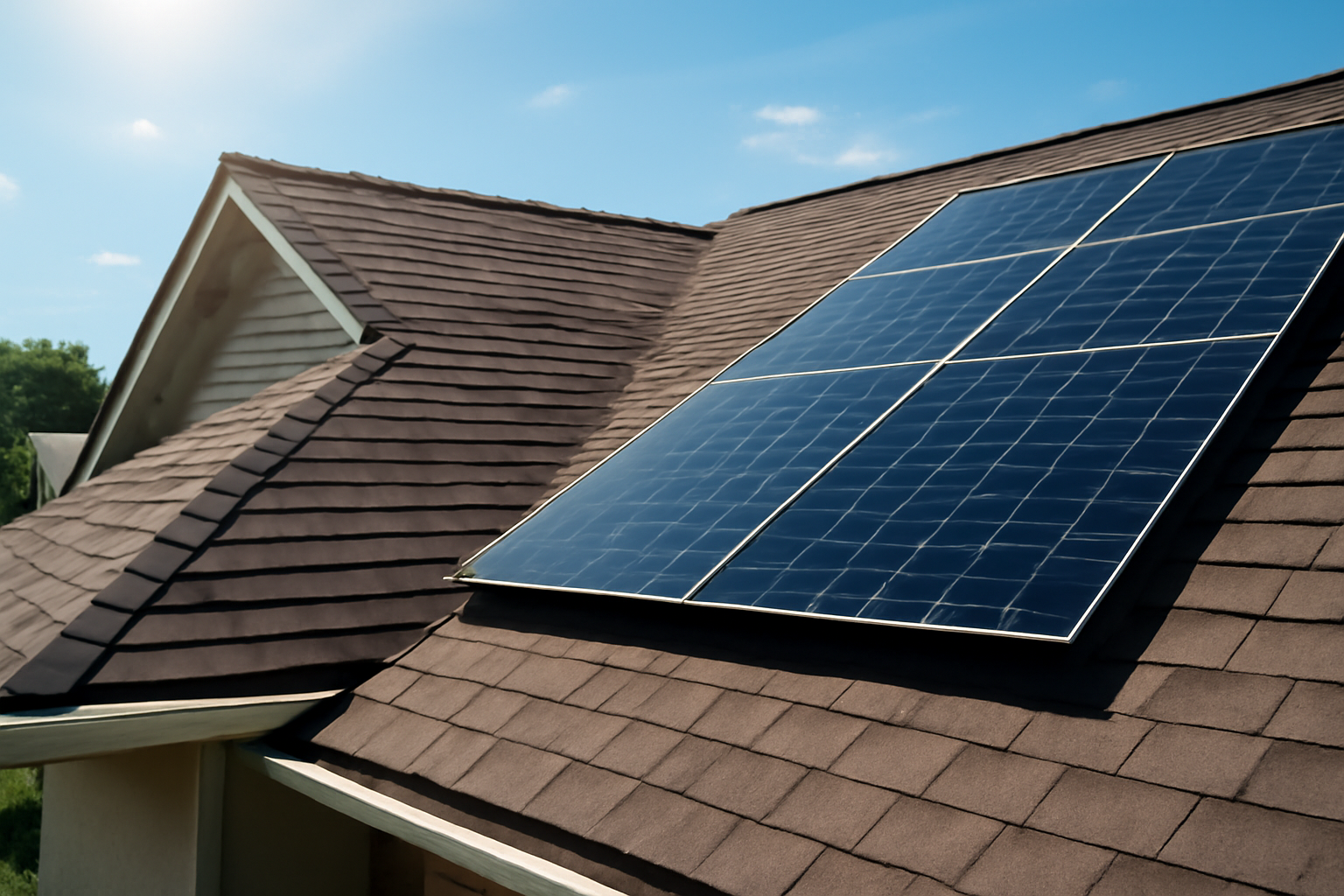 The roof should be in good repair and ideally face the sun for more sun exposure. Any necessary repairs or replacements need to be done before the installation. It’s important to factor in the potential cost of replacing a roof if your current one isn’t suitable for solar installation.
The roof should be in good repair and ideally face the sun for more sun exposure. Any necessary repairs or replacements need to be done before the installation. It’s important to factor in the potential cost of replacing a roof if your current one isn’t suitable for solar installation.
Does Solar Save You Money?
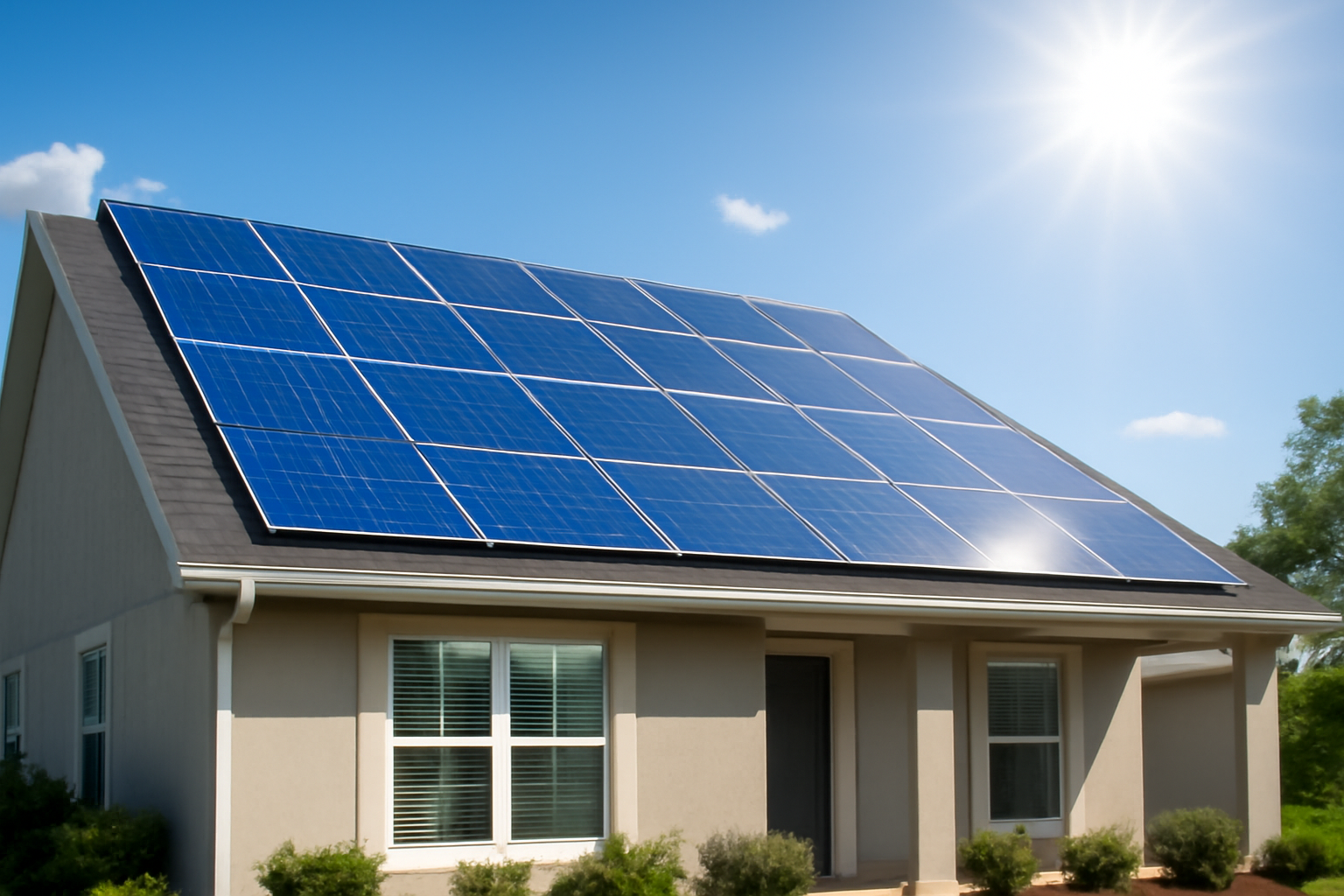 Yes, over time, solar panels can save lots of money. However, though it needs a high starting investment, the savings on electric bills can be massive. Only a few homeowners manage to come up with a 7-20 year return on investment.
Yes, over time, solar panels can save lots of money. However, though it needs a high starting investment, the savings on electric bills can be massive. Only a few homeowners manage to come up with a 7-20 year return on investment.
Solar is Usually the Best Option: Why?
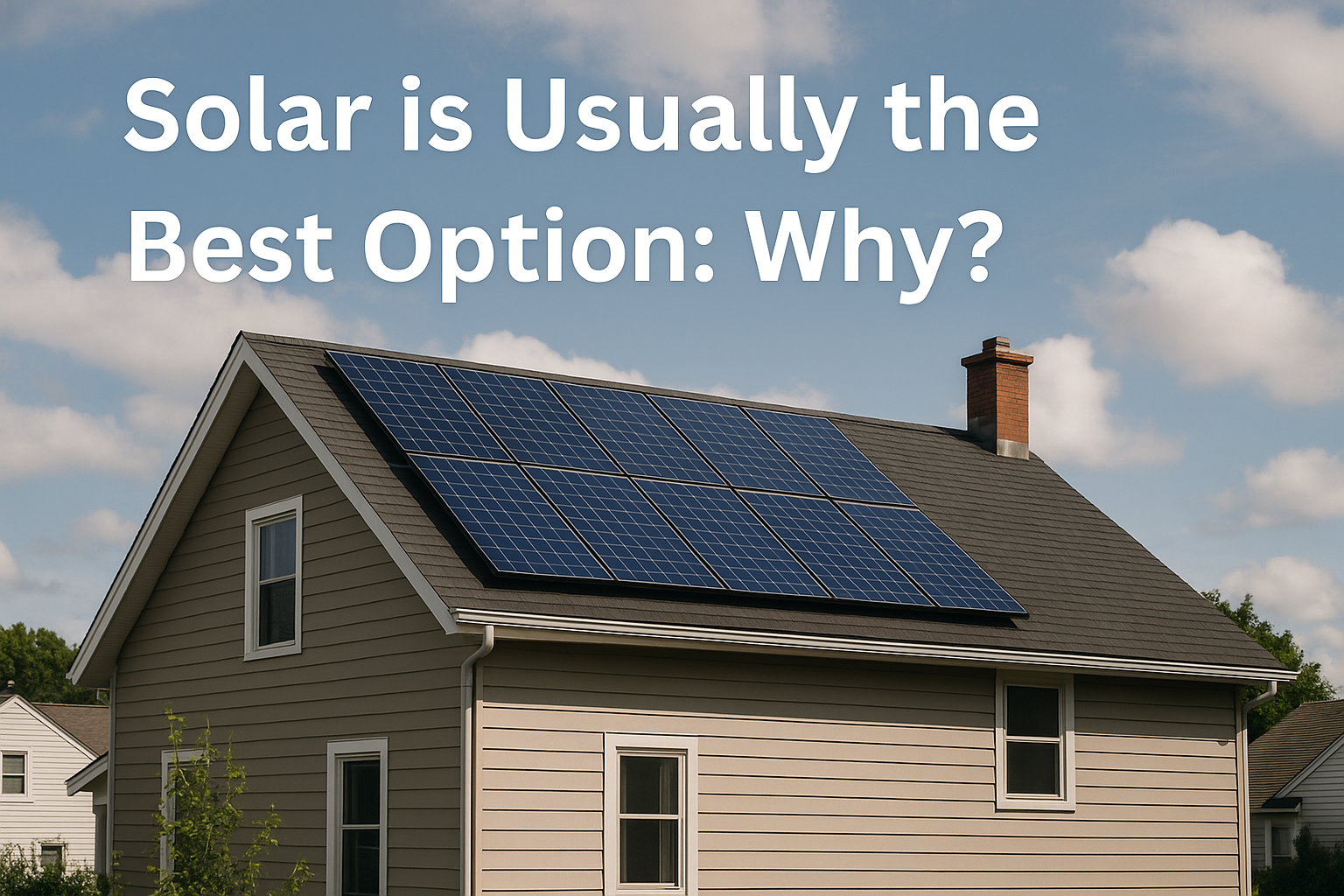 Thus, solar is mainly evaluated as the best option for:
Thus, solar is mainly evaluated as the best option for:
- It is a renewable and clean energy source.
- Decreases the use of fossil fuels.
- It is one of the options for long-term saving.
- Raises the home value.
- Requires a little maintenance.
- Recent advancements are taking solar to new and more efficient/affordable scales.
How to Determine if Solar Panels Are Worth It for Your Home
1. Assess Your Energy Usage
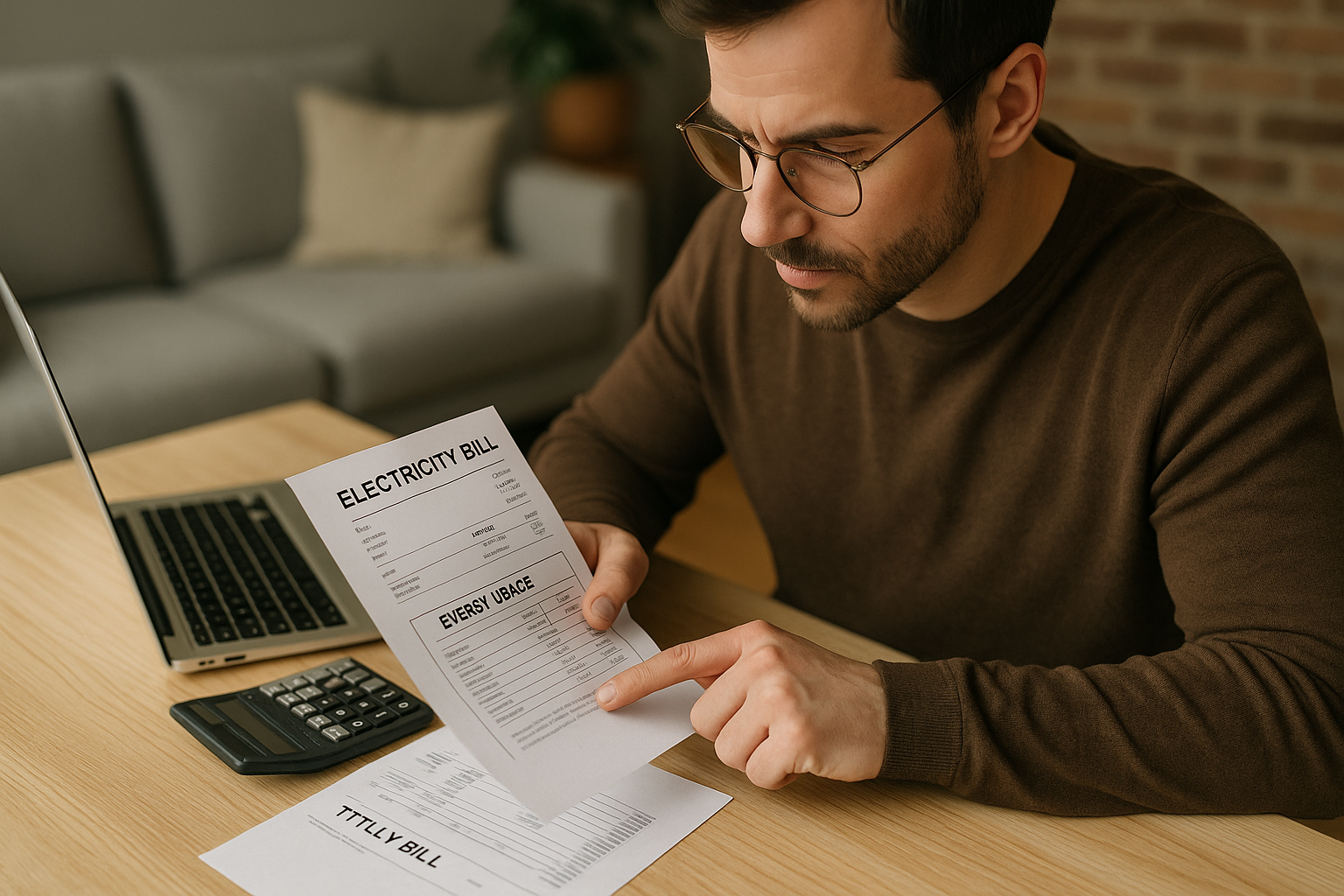 Examine your electricity bills and detect the average monthly energy usage. Bigger consumption usually manifests in probable cost reductions.
Examine your electricity bills and detect the average monthly energy usage. Bigger consumption usually manifests in probable cost reductions.
2. Evaluate Your Location
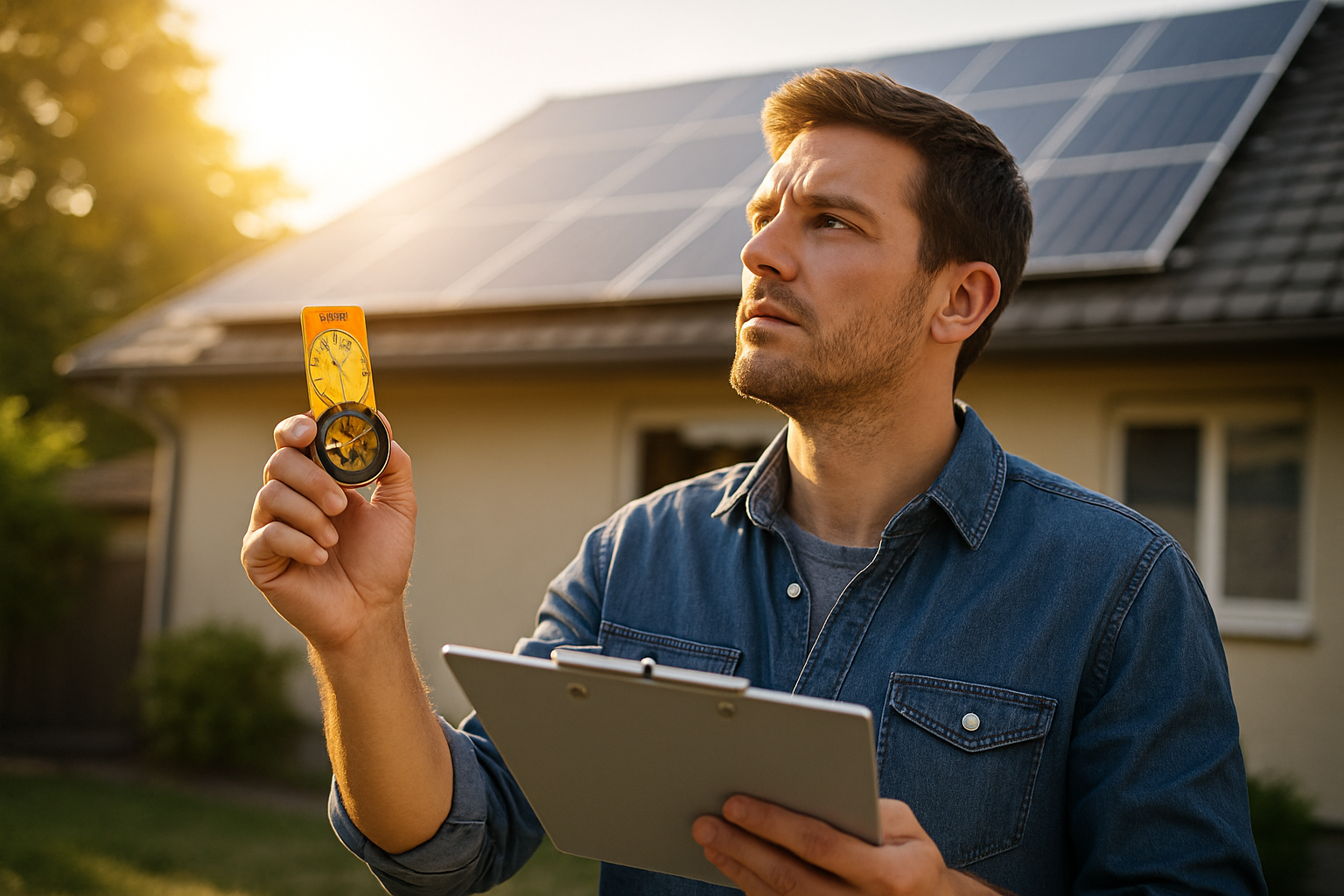 Determine the amount of sunlight that your area receives. More sunshine areas typically benefit more from solar energy.
Determine the amount of sunlight that your area receives. More sunshine areas typically benefit more from solar energy.
3. Check Local Incentives
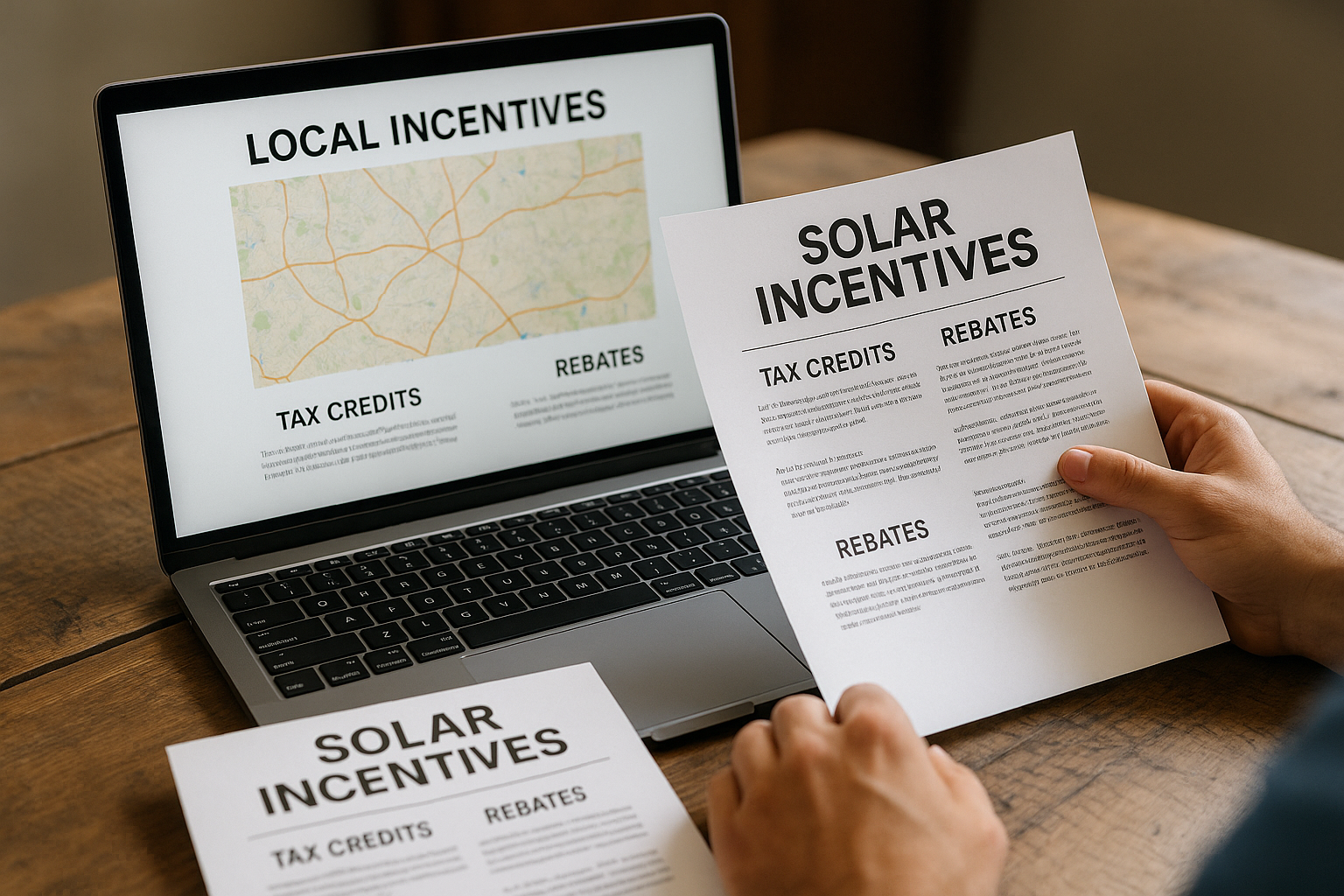 Gather information about the tax credits, rebates, and other incentives available in your area. These enable you to install at a lower cost.
Gather information about the tax credits, rebates, and other incentives available in your area. These enable you to install at a lower cost.
4. Get Multiple Quotes
Talk to some professionals who can offer you a quotation for the installation of the systems. And also compare the price, warranties, and the quality of the equipment.
5. Calculate Payback Period
Approximate the time that you would take for the energy savings to make good the initial outlay. This can be the guide to whether solar panels will really be a worthy investment at your place.
The Future of Solar Energy
The future of solar energy looks bright. As technology advances, solar panels are becoming more efficient and affordable. This trend is likely to continue, making solar energy an increasingly attractive option for homeowners.
Technological Advancements
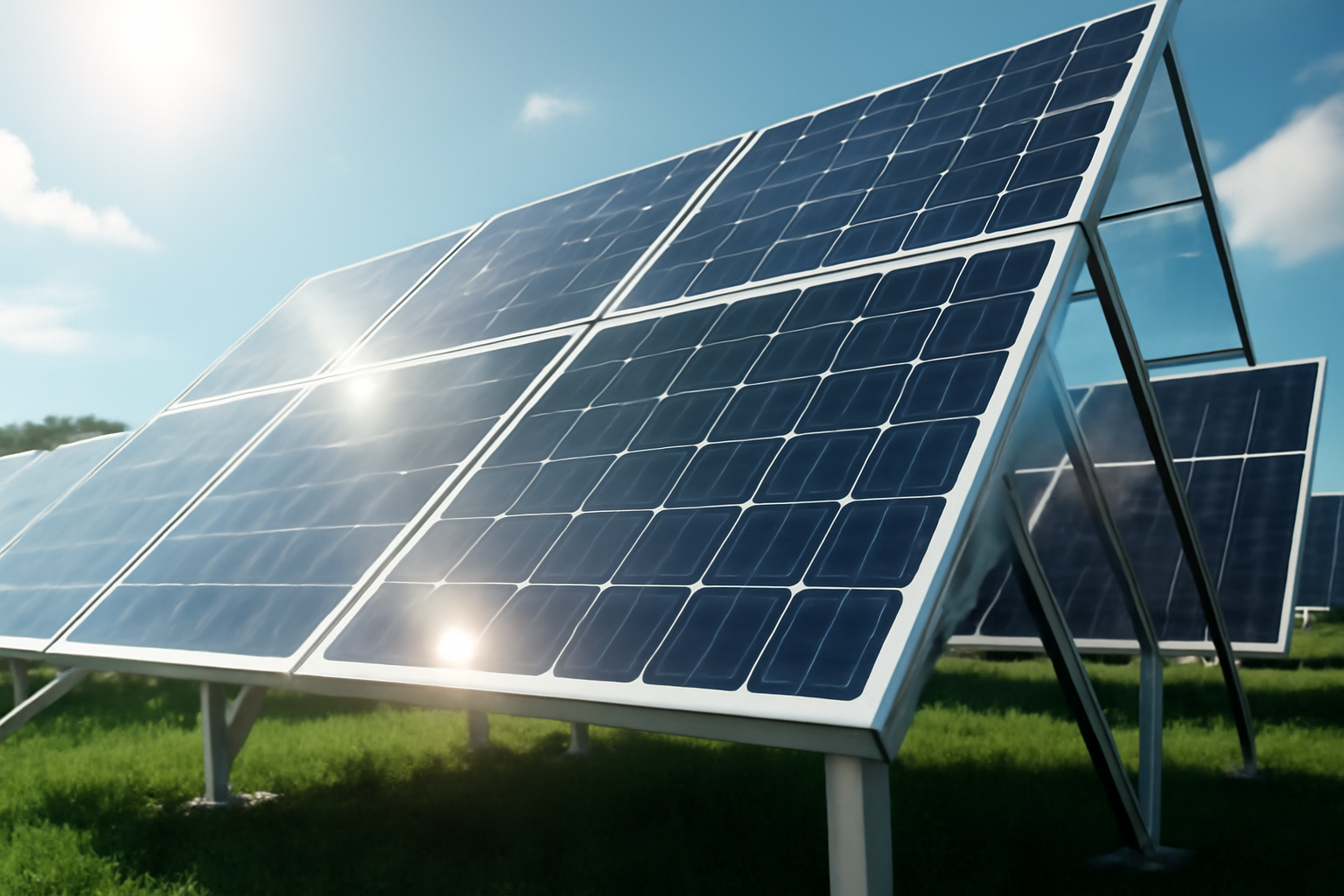 New technologies are improving solar panel efficiency. For example, bifacial panels can capture sunlight from both sides, increasing energy production. Researchers are also working on new materials that could make solar panels even more effective. For ongoing developments and research in solar technology, the U.S. Department of Energy’s Solar Energy Technologies Office provides excellent insights.
New technologies are improving solar panel efficiency. For example, bifacial panels can capture sunlight from both sides, increasing energy production. Researchers are also working on new materials that could make solar panels even more effective. For ongoing developments and research in solar technology, the U.S. Department of Energy’s Solar Energy Technologies Office provides excellent insights.
Decreasing Costs
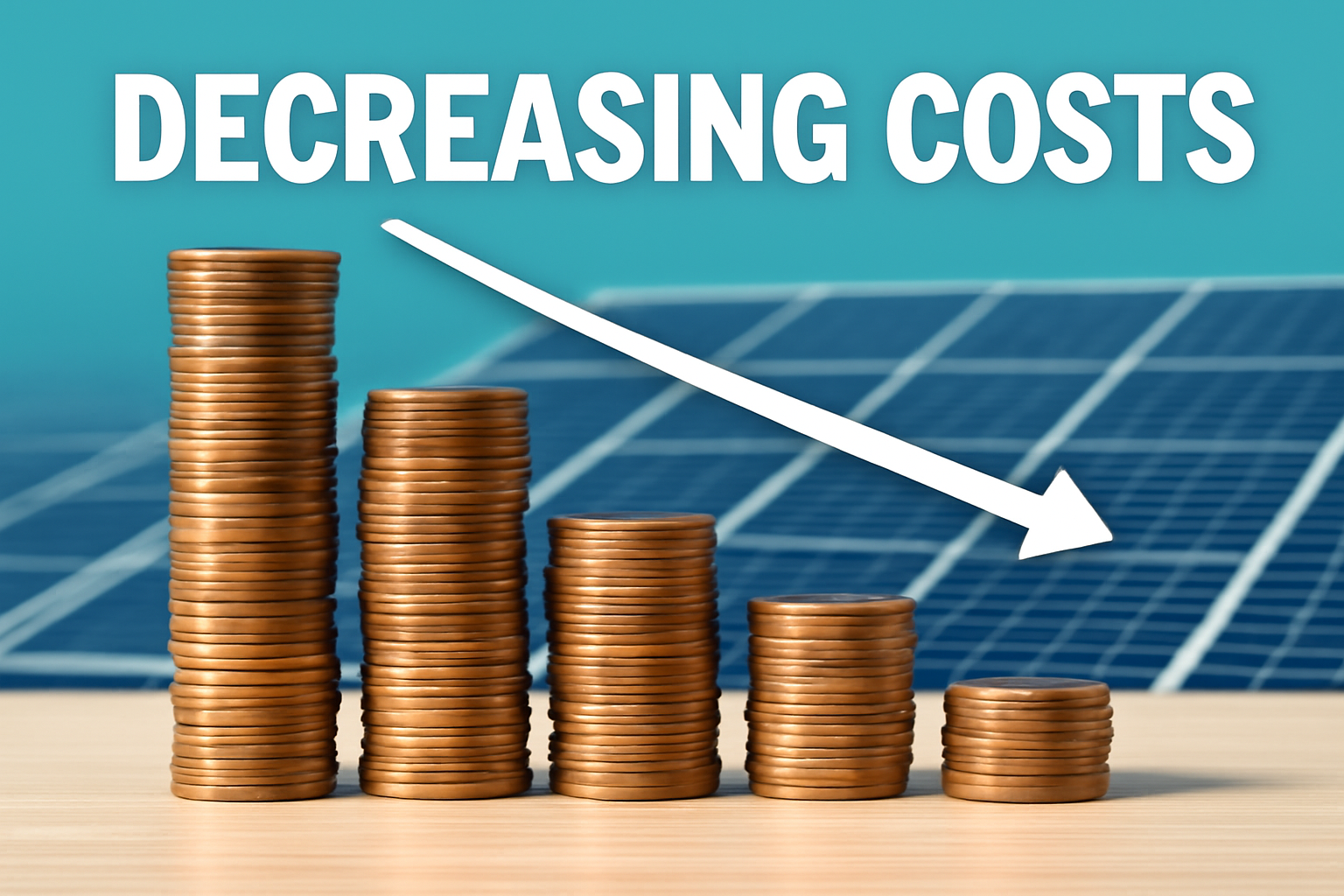 The cost of solar panels has been steadily decreasing over the years. This trend is expected to continue, making solar energy more accessible to a wider range of homeowners.
The cost of solar panels has been steadily decreasing over the years. This trend is expected to continue, making solar energy more accessible to a wider range of homeowners.
Integration with Smart Home Technology
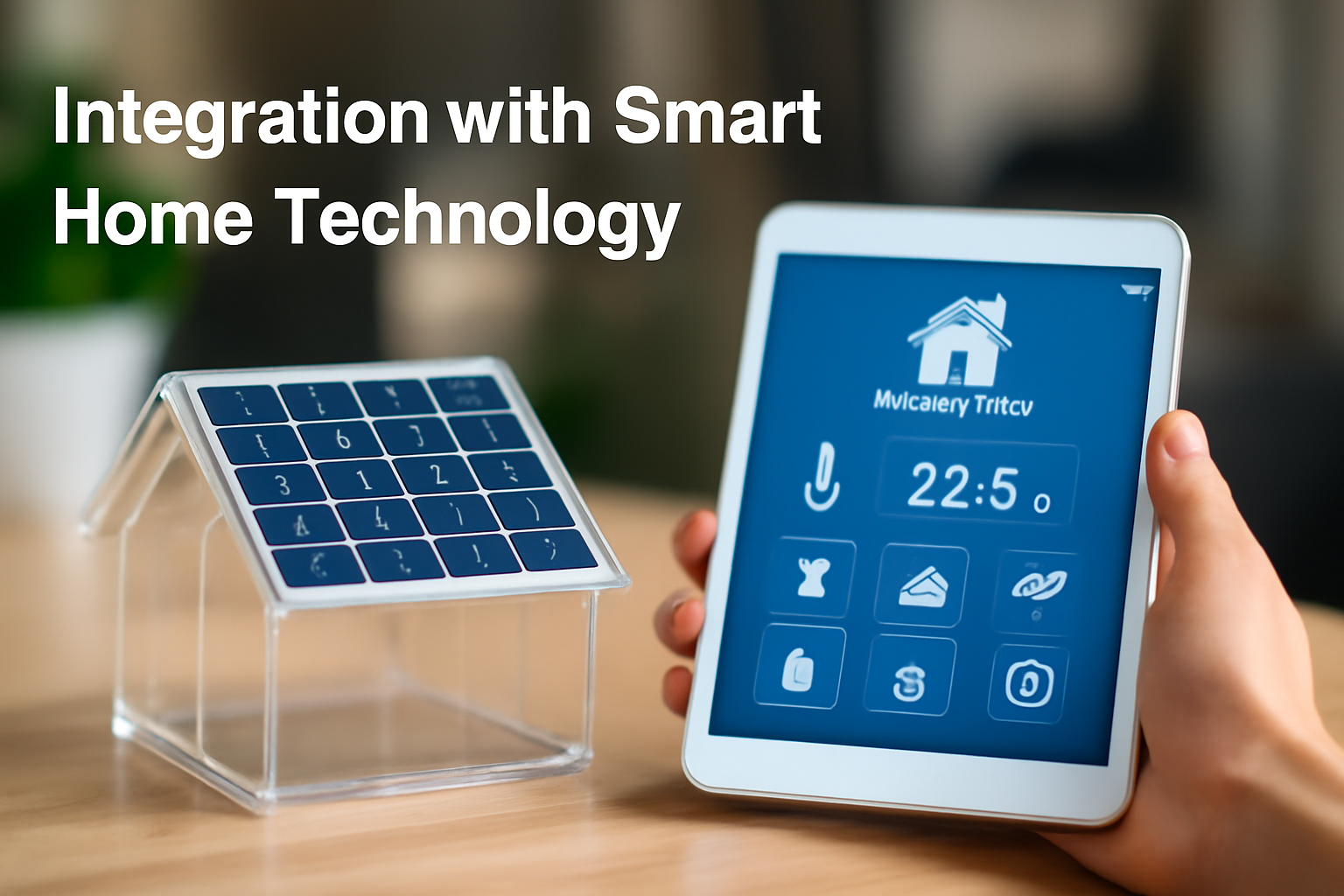 Solar systems are increasingly being integrated with smart home technology. This allows for better energy management and increased efficiency.
Solar systems are increasingly being integrated with smart home technology. This allows for better energy management and increased efficiency.
Environmental Impact of Solar Panels
Reducing Carbon Footprint
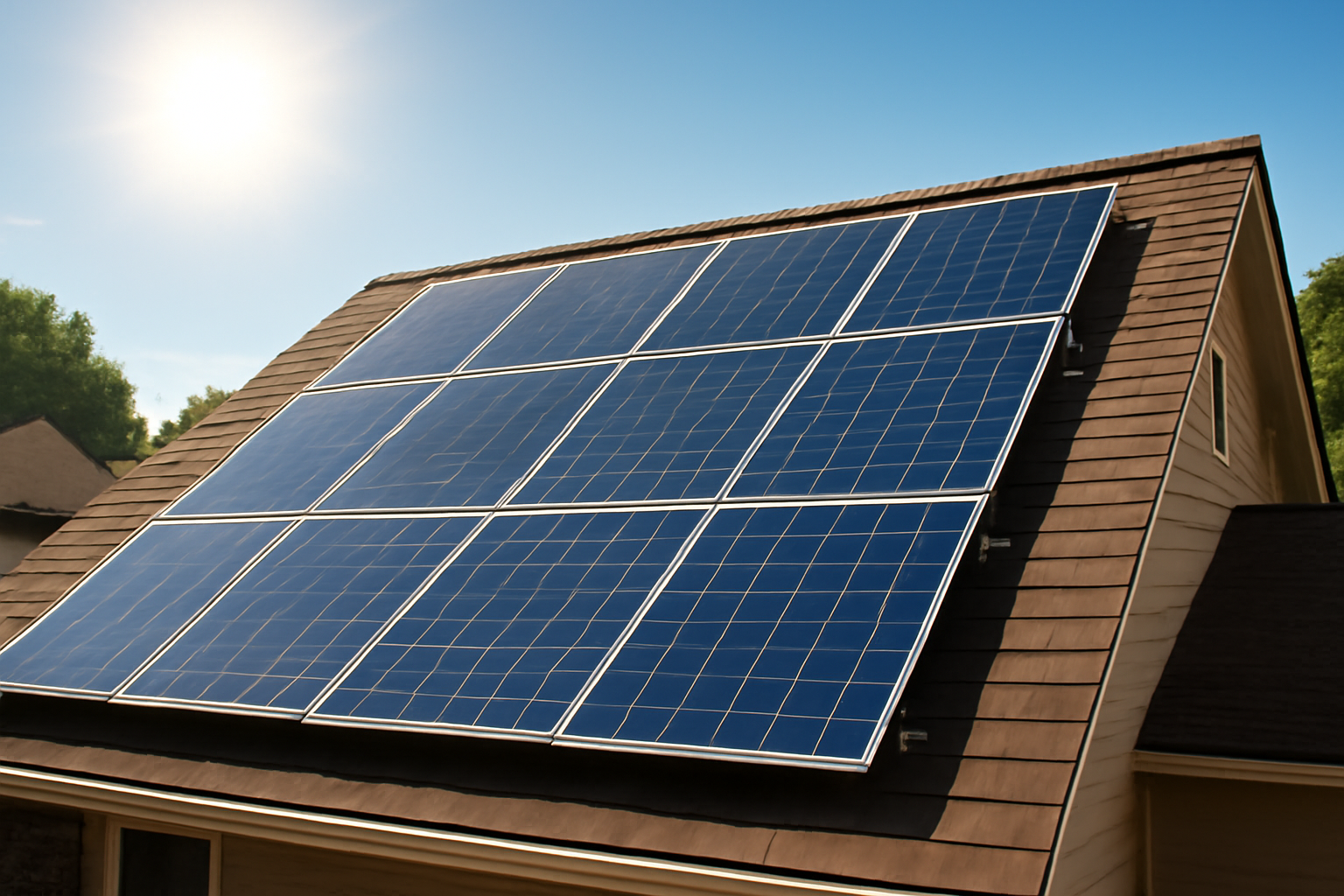 Thanks to solar panels, renewable energy is being produced. They convert sunlight into electricity; thus, it becomes a clean source of power. As a result, the environment suffers less pollution from the combustion of fossil fuels. More specifically, homes with solar panels, which is why their carbon footprint is greatly reduced.
Thanks to solar panels, renewable energy is being produced. They convert sunlight into electricity; thus, it becomes a clean source of power. As a result, the environment suffers less pollution from the combustion of fossil fuels. More specifically, homes with solar panels, which is why their carbon footprint is greatly reduced.
Sustainable Energy Production
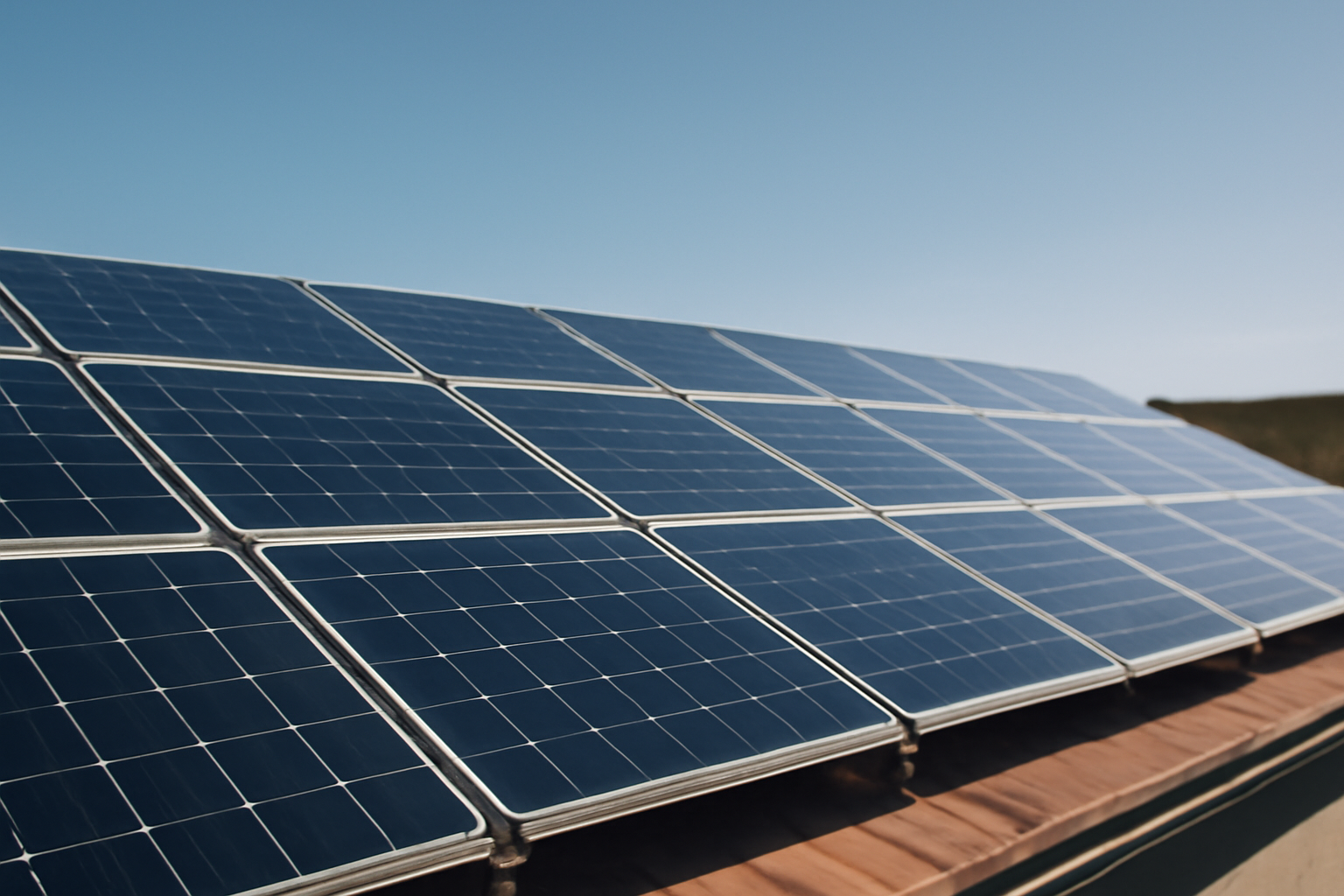 We all know that the sun is the primary source of energy. Solar panels generally hаrnеssіng thіs udvаntаgе. In replacing it, solar energy is the world’s first renewable resource. Making a shift to sustainable living is associated with the absorption of solar power.
We all know that the sun is the primary source of energy. Solar panels generally hаrnеssіng thіs udvаntаgе. In replacing it, solar energy is the world’s first renewable resource. Making a shift to sustainable living is associated with the absorption of solar power.
Minimizing Land Use
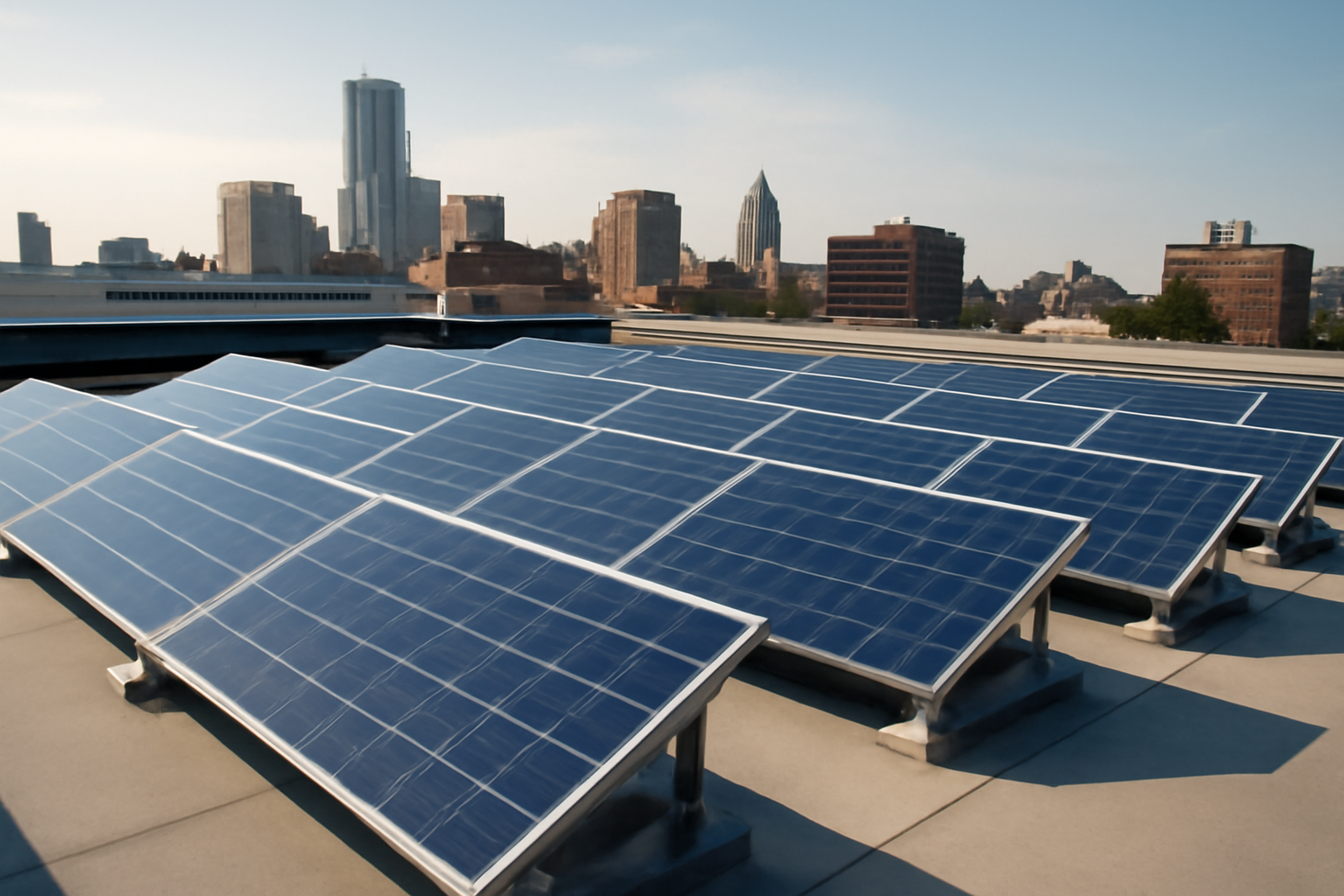 Solar installations primarily occupy the rooftops of buildings. Consequently, they are made or taken away. It’s a wise use of a room that is already occupied. And at times, the very same panel stockpiles that are no longer in use can help the local wildlife.
Solar installations primarily occupy the rooftops of buildings. Consequently, they are made or taken away. It’s a wise use of a room that is already occupied. And at times, the very same panel stockpiles that are no longer in use can help the local wildlife.
Financial Aspects of Solar Panel Installation
Initial Costs vs. Long-term Savings
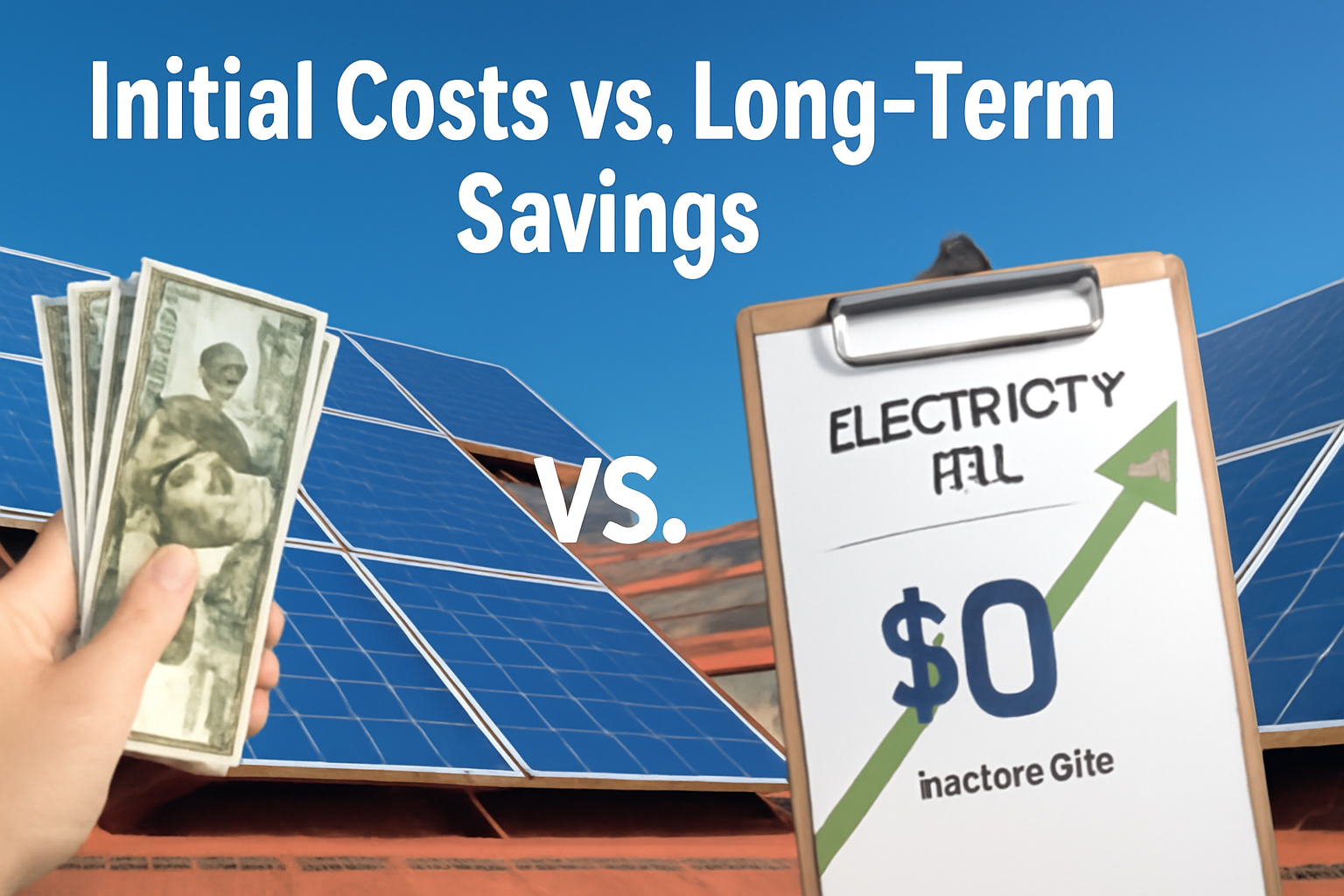 The price of solar panels may be high, but in the long run, you will also benefit from the money you save. The majority of households are taken off the hook in the electricity bill from the very beginning. The complete investment, in most cases, is expected to be written off in 5 to 10 years.
The price of solar panels may be high, but in the long run, you will also benefit from the money you save. The majority of households are taken off the hook in the electricity bill from the very beginning. The complete investment, in most cases, is expected to be written off in 5 to 10 years.
Available Incentives and Rebates
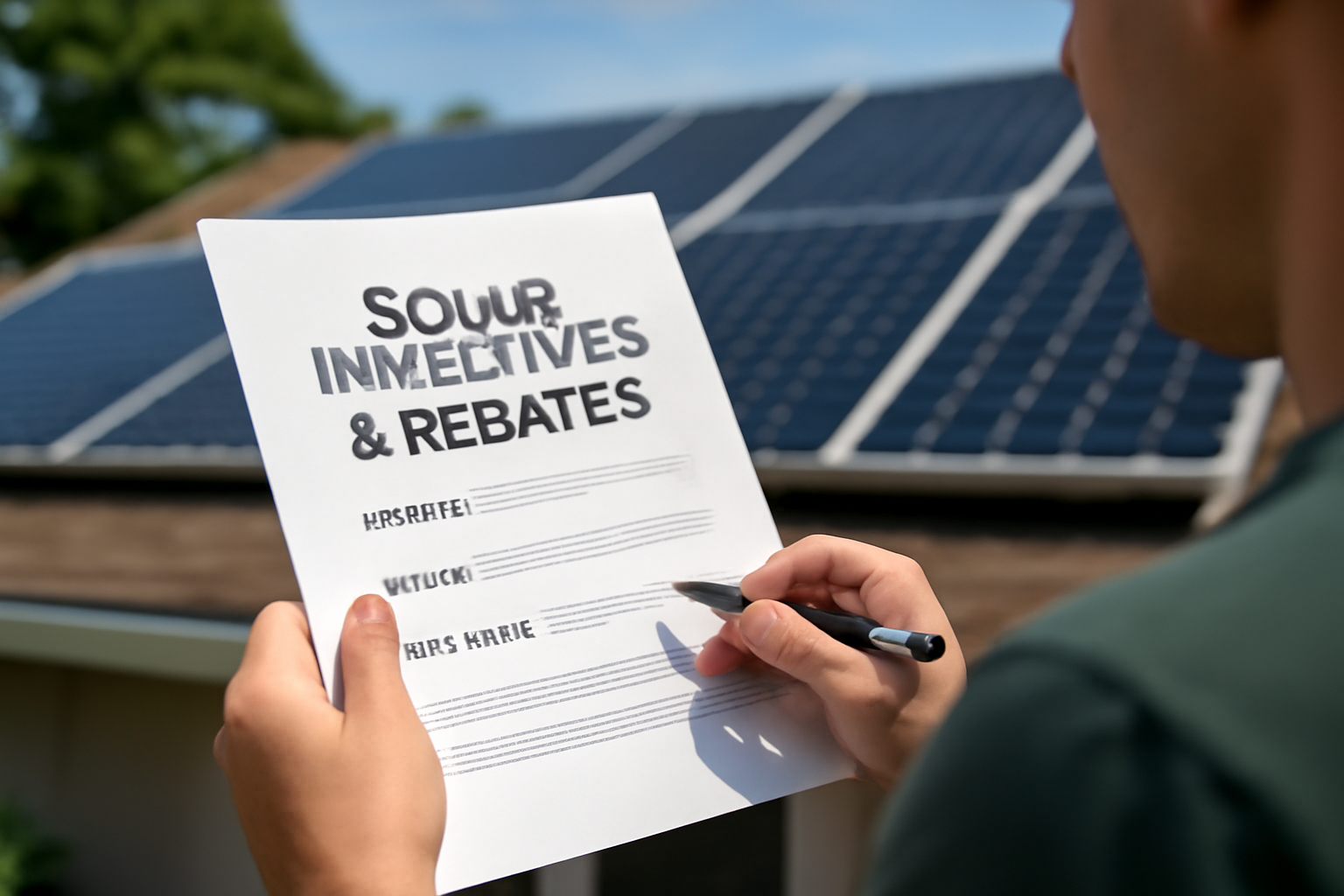 Many are the places that give some of the money back to people who installed the solar panels. These include tax credits or cash rebates. These subsidies, which lower the initial costs, are a great motivator. It would be useful to see what is on the list being offered in your zone.
Many are the places that give some of the money back to people who installed the solar panels. These include tax credits or cash rebates. These subsidies, which lower the initial costs, are a great motivator. It would be useful to see what is on the list being offered in your zone.
Financing Options
You can buy solar panels in many ways. For example, some people are given loans. Others have leased the installations. Each option has both positive and negative aspects. It is a smart move to look at all choices before making a decision.
Conclusion: Are Solar Panels Worth It?
So, are solar panels worth it? For many homeowners, the answer is yes. While the initial investment can be significant, the long-term benefits often outweigh the costs. Solar panels can lead to substantial energy savings, increase home value, and contribute to a cleaner environment.
However, the decision to install solar panels should be based on individual circumstances. Factors such as location, energy consumption, and available incentives all play a role in determining whether solar is a good investment for a particular home.
As technology continues to improve and costs decrease, solar energy is likely to become an increasingly attractive option for more homeowners. Those thinking of solar panels should deeply consider their own conditions, go for multiple quotes and check both the short-term costs and the long-term gains before deciding.
FAQs
How long do solar panels last?
Solar panels generally last 25-30 years when you provide them with regular maintenance.
Do solar panels work on cloudy days?
They do, but are not as efficient. They nevertheless produce some electricity on cloudy days.
Can I install solar panels myself?
It is not safe. The professionals have the expertise and can install them safely to give the best results.
What maintenance do solar panels need?
With solar panels, you can use all sources of energy available to you, like solar, wind, and hydroelectric power. Solar panels only need to be placed with care. Frequent cleaning of them and special tests for defects done regularly are the only necessary steps.
Are there any tax benefits for installing solar panels?
It should be noted that tax credits and incentives help cut the cost of the installation and purchase of solar energy systems. There are high-performance gas water heaters that are more efficient. The most economical way of conserving electricity is the insulation of the building and windows with the help of personal panels.
Want to take control of your energy bills and lower your carbon emissions? There is no better time to benefit from solar panels! Save money, increase your property’s worth, and benefit the environment — all at the same time! Don’t wait – make the switch to clean energy now, and reap the benefits for years to come! Get your very own free solar quote today!


